|
Danielle Ramsay is a proud Scot who gave up an academic career to write creatively after being shortlisted for the CWA Debut Dagger in 2009 and 2010. She was then a New Writing North 2011 Read Regional author. She is the author of five DI Jack Brady books set in the North East of England and her latest book, The Last Cut which is the start of a new psychological thriller series with the female protagonist, DS Harri Jacobs was published in June and described by Martina Cole as: “A really cracking good read!” On my writing desk sits an old, battered copy of Beloved by Toni Morrison. It is the only book that I have there and its purpose is to inspire me when I write. I wrote five DI Jack Brady books, the latest one, The Puppet Maker (2015) with Beloved within reach; always close enough so my fingers could touch it. A constant reminder of why I wanted to write. Why I wanted to be storyteller. Published in 1987, Beloved’s exploration of family, trauma, repressed memories and ultimately, the resilience of the human psyche to fight oppression – regardless of the personal consequences – is why this book is so inspirational. The racial themes of black/white relations founded in such an inequitable past as slavery, struck a personal chord with me as my Algerian grandfather was raised in Dundee by a white family in the early 1900s and suffered unspeakable racism throughout his life. At the age of thirty-seven he was deployed at the outbreak of the Second World War to France. Physically, as a 6’1’ black man he was a conspicuous figure; finally captured, he proceeded to escape three times during his five year imprisonment. He even survived a “death march” into Germany at the close of the war by feigning death and then made his own way home through Europe, arriving months after the end of the war. My grandfather died shortly after being reunited with my grandmother from an intracranial brain tumour, believed to have been the result of trauma to the head after being beaten repeatedly by a German soldier’s rifle. My black-skinned mother grew up fatherless with no reference to her racial heritage; one which had caused her to suffer being called the “N” word (amongst other racial insults) – a slur I had heard as a child growing up in reference to her. Morrison dedicates Beloved to the “Six Million and more” Africans and their descendants who had died during the transatlantic slave trade and pulls no punches as she asks the reader to suspend disbelief as she takes them into a world of two narratives; one set during slavery and the other after the end of the Civil War. The narrative is powerfully alluring and lyrical and at the same time, harrowing as it exposes the unspeakable insidious ills of slavery and she tells it as it was – regardless of how unpalatable. But it also speaks of human survival and resilience against adversity which is why it speaks to me of my maternal family. However, Beloved is not the only item on my desk that inspires me as a writer. An old photograph of Harriet Ann Jacobs sits beside Beloved and was my inspiration when I wrote The Last Cut (2017). The Last Cut (2017) is the first book in a new series and features DS Harri Jacobs who is the victim of a horrific attack and transfers to Newcastle from the Met in the hope of leaving her past behind. Her assailant left her alive, with the promise that one day he would be back. And she ran. But a year later, with a serial killer stalking the streets of Newcastle, horrifically altering his victims, she soon realises that he has followed her. But the hunter soon becomes the hunted as DS Harri Jacobs refuses to become his victim for a second and final time and decides that it is time to take her revenge. The photograph so inspired me to the extent she is DS Harri Jacobs’s namesake. Harriet Ann Jacobs was an African American slave who escaped by hiding in a crawl space above a storeroom in her grandmother’s house in the summer of 1835. She remained in that “little dismal hole” for the next seven years. She went on to become an abolitionist and publicly spoke against the ills of slavery, racial and gender inequality. She then wrote an autobiographical novel, Incidents in the Life of a Slave Girl which was published in 1861 and exposed the horrific insidious sexual abuse inflicted upon women and girls within the confines of slavery. However, Harri is clearly not an escaped slave, nor an African American novelist, but she is a survivor of sexual abuse and oppression who through her job fights for the freedom of other female victims. There are parallels that link my fictitious character to her namesake, such as the fact that Harriet Ann Jacobs hid in a crawl space for seven years watching and waiting before seizing her liberation. DS Harri Jacobs effectively locks herself up in a glass prison – a fifth floor warehouse apartment – where she watches and waits for her attacker to return, as promised. But both women break free from their confines, one from slavery and the other as a rape and potential murder victim – both ultimately living with the threat of being hunted down; Harriet Ann Jacobs as a fugitive slave and DS Harri Jacobs as a victim whose assailant was never caught. Both have the threat of men claiming and destroying them and yet both women are ultimately victorious warriors who chose not to live in fear. The Last Cut deals with female victims, but instead of having them as part of a body count, I wanted them to be survivors; to transcend victimhood and metamorphose into warriors who ultimately save themselves. The abolitionist, Harriet Ann Jacobs used her novel to fight against slavery for the victims who endured its ills, and so, as a feminist and a Patron of the charity SomeOne Cares which counsels victims of rape, child abuse and domestic violence, I wanted my victims to fight back. To resist. To refuse. And if at all possible, to save themselves. An advocate against domestic violence for personal and political reasons, Danielle is the Patron of the charity SomeOne Cares which counsels survivors of domestic violence, rape and child abuse. An advocate against domestic violence for personal and political reasons, Danielle is the Patron of the charity SomeOne Cares which counsels survivors of domestic violence, rape and child abuse.
0 Comments
Indie filmmaker AD Lane discusses inspiration, acute pain and his 10-year passion project 'Invasion of the Not Quite Dead'. 1. Which stories - films/books/comics/TV shows - do you think have made the greatest impact on you? I am pretty much the most cliched filmmaker going: I had a very lonely and unhappy childhood, so much so…the family TV would be my best friend. I’d live my life through other people, characters from TV shows, I would have my adventures and experiences through the films I watched on the big screen… so it’s safe to say that TV and film would always play a big role in my life…I’m quite dyslexic, so reading was never my thing, nor were comic books, but if I had to put out a few titles of what really inspired the younger version of me it would be ‘Back To The Future’: it gave me the strength to take on the school bullies, to not go through life being pushed around and to be in control of my destiny. Not only that, but to be fully in control of my destiny, so a lot of who I am and where I am now is from that film having such an impact on me. Then we have a whole bunch of horror films I watched as a kid that gave me my edginess…Hammer Horror was such a big part of my childhood - as was having a babysitter who was obsessed with video nasties: her stories of banned films ignited a passion in me for the controversial. 2. When did you realise horror was your genre? It’s funny but I’d say that nowadays horror is my least watched genre, mainly due to most films having really poor CGI gore, blood splatter, or over-the-top CGI imagery that just takes you out of the film, so for me it’s rare to get truly excited for a modern horror, but it does happen from time to time…My love will always remain dedicated to that of 70's & 80's primarily, with some 90's…but I will never forget the day I watched ‘Dawn of the Dead’ and even to this day I have a vision in my head of visiting our local video rental store and seeing the ‘Day of the Dead’ VHS box, and it always haunted me, in a good way. In fact all the horror films had an impact on me, and the times were very different in the 80’s: my dad would just rent them for me. So I wasn’t fazed by horror films or violence from a very young age. I guess Horror is my first love, and when I watched a documentary on ‘Day of the Dead’ and seeing Tom Savini make up the zombies, and seeing hundreds of zombies in an underground bunker eating food and laughing behind the scenes…that was when it hit me…I want to do that, I want to make a film that will bring a lot of people together to make something special, maybe not on the scale of what I’ve ended up doing, but the seed was planted. 3. Wes Craven or John Carpenter – or both? I have a huge amount of respect for both, and it’s safe to say that Wes Craven would be in my top 5, but for me John Carpenter is the MAN, with ‘The Thing’ being my all-time favourite horror film, and with films like ‘They Live’, ‘Halloween’ and ‘Big Trouble in Little China’, he’s got more of my all-time favourites in his catalogue. But other inspirations for me are David Cronenberg and also David Lynch - this is where a lot of my love for surrealism and body horror comes into play, which is an area not normally associated with Carpenter. 4. Stephen King or James Herbert? If this is a book question, PASS…haha. If this is a chance for me to talk more about my childhood, then Stephen King had a huge part to play with all the TV and movie adaptations. My all-time favourite filmmaker is Stanley Kubrick, and I adore his version of the King novel ‘The Shining’. I know King himself didn’t like it and so it was remade based more on his book, which I wasn’t a big fan of. So apart from that, yeah, I love a lot of the adaptations…it was again a huge part of my childhood. 5. You’ve been working on ‘Invasion of the Not Quite Dead’ for 10 years – can you remember what was the initial inspiration? There have been a few initial inspirations, but the very first one would be recovering from an 11 month battle with a lodged kidney stone, 2003/2004, in and out of hospital in the most intense pain possible almost daily. After it passed, I had only one thought in my head: to go follow my dream of making a full length feature. So I enrolled in film school and the rest, as they say, is history…But to not be in pain, that’s my inspiration. But then you could say being in pain is also weirdly inspirational because you can draw on something nasty, that maybe you couldn’t if you weren’t in any pain…but what I found whilst on this journey is a lot of mental pain which did at times consume me to the point I actually didn’t know if I could make it back. My therapy was to put that into my film-making and transfer my pain to my characters. And now inspiration to me is knowing that my journey has in some way inspired someone - that is incredible to me. 6. What has been the most fulfilling experience so far making the film? I think that changes as time goes on. Making the film and directing incredible actors like Frank Jakeman, Marc Zammit, Neal Ward, Nina Stratford, Joe Riley, Lydia Kay, that has been incredibly rewarding. Having a bunch of people not only stick by you for years, but to know that they are giving the film everything they have is just amazing to me. But if I was to say what has been the most emotionally charged fulfilling moment so far, it was March 4th, 2017, when we premiered our new teaser trailer to a bunch of unsuspecting people over at Moonlight Drive-in Cinema. They were there to watch Matt Damon in ‘The Great Wall’, but they got to see our teaser first, and to just be teased ourselves and seeing it on the big screen was honestly the greatest feeling in the world…up there with getting married and having kids…roll on us seeing the final film up there soon. 7. And what has been the lowest moment and how did you overcome it? The lowest moment was probably when my 2-week-old, Indie, was in the hospital, she had to have an emergency operation, and it was while people who were no longer connected to the film decided to launch an attack on me and the project - this had been an ongoing cyber bullying campaign on me and my project for years - but they hit their absolute lowest going after me when they knew my little one was being operated on. I called them out, without naming them, that if it didn’t stop, I would name them. I’ve not had a single thing from them in nearly 2 years…and again, ‘Back to the Future’ gave me the courage to do that…but that would be my absolute lowest. The project itself had caused me to have somewhat of a mental breakdown, that didn’t help, and I really felt like I was drowning in an abyss of self-pain/hate, so I did the only thing I could think of doing: I put it into my film…let the film absorb my mental pain, which is why the film has a very dark tone about it, but I think in a positive way: what I went through has now enhanced the film, and for me everything I do is about trying to bring something new to the table, to experiment and to push myself. So did I do it to myself? subconsciously? was I part of my own experiment?… 8. What are the most important storytelling lessons you’ve learnt in making the film? Write about what you know, what you’ve experienced, people you know or have met, then take that and make it fit with your storytelling. For me, I took a lot of my pain, fear and anxiety, I would then put that into my storytelling. So it’s good to have a starting point: if you’ve never experienced politics, then maybe making a film about parliament is the wrong way to go, or if you hate football, making a film about it would be the wrong direction to go in, so for me with ‘Invasion’ a lot of it is from me, and that’s the best advice I could give people when writing their own stories. Unless you have an incredible imagination, in that case, don’t stop… 9. How have you inspired the actors and crew to stick with the project for so long? I often wonder that myself, and people would always say, well the film is very different and unique, all of the main characters have career defining scenes, so I can only guess that they saw something very special in the film, hopefully in me too. I make sure that when people are connected to the film, they’re not just cast and crew, they become an extended part of my family: my wedding day was full of my film's backers, the cast, the crew. This isn’t just me making a film, but building a community of what I call a new generation of Goonies, people who may be slightly broken or need something in their life. A lot of the people connected to my film fit into that category, so there’s a few reasons why people may have stuck around for so long. My lead actor, Frank Jakeman, has stuck with me since 2009, we finally finished his scenes DECEMBER 2016. This guy is not only an incredible actor who will be in very high demand after ‘Invasion’ but he’s been an amazing friend, a real father figure to me, so there is a lot of love between me and those involved with this film, it’s really a project about family. 10. I remember watching Peter Jackson’s ‘Bad Taste’ and, even though it’s a great film, some of the effects are pretty bad (at one point someone off camera throws a bucket of fake blood into shot!). Your effects, on the other hand, look amazing. How have you managed so much gore with no CGI? It’s been tricky but overall very fun to say, NO CGI whatsoever, from blowing a car up in Bulgaria, to having cars on fire, real blood splatter. Our Make Up FX artist Kate Griffiths is just incredible, a lot of the effects look so damned good because she doesn’t buy props, she goes to the butchers, so it makes everything look even more raw and real, because a lot of it is… And the same troubles go with my determination to have part of the film look like the original ‘The Fog’ with mist everywhere. So all night shoots, and that’s like 30% of the film, has to have real fog/mist in the scenes, so that has been very challenging, and it’s all thanks to Danny Allen who is always designing better ways of channelling more and more smoke for us...And finally a big shout out to our cinematographer, Josh White, who has just made making the film an absolute pleasure. He’s creating some truly cinematic scenes, that pay homage to all the 80’s horror movies I loved as a kid…And that’s the other thing: we’re primarily a crew of 2-4 people…we wanted to prove that you don’t need a crew of large numbers to make something of quality. We hope that we can inspire a new generation of filmmakers to make a lot from very little. 11. You’re pitching ‘Invasion of the Not Quite Dead’ as not quite a zombie movie – do you think zombies have been done to death? I think it’ll always have an audience, but the last few years there has been a huge surge in zombie TV/films…I’m a big fan of ‘The Walking Dead’, but not so much a fan of modern zombie films, with the exception of a few. For me, the true zombie genre is Romero’s original trilogy - I’m also a huge fan of the ‘Return of the Living Dead’ franchise (first 3). It’s not for me to say it’s been overdone, but there’s only a handful I personally like. The irony is, the zombie genre isn’t particularly one of my favourite genres, with ‘Invasion’ it’s been about incorporating different genres. The idea to not go the copycat route came in university, during an assignment to make a short film, I thought why not make something that’s just slightly out of the box, so it’s not quite a zombie short film, haha, so in 2005 the idea to do something different began, 2 years before I put making ‘Invasion’ into motion… 12. Why do you think horror as a genre has such a devoted audience? A lot of people love to be scared, in a safe environment that is. The best example I can give you is of my 4-year-old Daisy, she’s now at that age of loving things like old ‘Doctor Who’ and MST3K with the dinosaur episodes. She loves to be scared, but doesn’t like going to the toilet on her own now, but she won’t NOT watch the things that scare her. I think a lot of people maybe are somewhat morbid, or they feel better about their lives seeing someone go through hell. Some people just find horror films funny, and they’re maybe sick thinking like that, haha, who knows. It’s the one genre that would potentially excite the most amount of people…for a filmmaker it’s the most exciting one you can shoot: creating stunning light and smoke scenes, pushing actors to go past breaking point for a scene, to create your own sub-genre of monsters…I guess classic Doctor Who helped me want to create something of my own, now I’ve created the NOT QUITE DEAD… 13. What one piece of advice has stuck with you throughout your filmmaking experience and who gave it to you? My mentor at the International Film School of Wales was none other than Oscar nominated Ken Russell, who later went on to become a friend and someone who passionately believed in my film and would join the project as a consulting producer. When I first met Ken, it was in 2004, he came in and did a big seminar on his experience in the film business, which was more of a warning: if you get to the point of working for a studio, you’ll lose a lot of creative control. It was actually his seminar that stuck with me for ‘Invasion’ and how much I wanted to make sure I didn’t lose control of the film's vision. It’s why it’s taken so many years, my fight for full control over the film, and it was his advice during the seminar that started me on the journey I then went on. 14. Do you have any advice for someone who is about to embark on their own filmmaking odyssey? I’ll keep this one simple: no matter how hard it gets, find a way not to quit. I’ve had to step down several times from my dream over the years, I’ve never once quit, but sometimes you have to admit something isn’t working and then regroup, figure it out. The longest gap once we began shooting was over a year and a half, I had to put family first, there was no alternative, but the biggest thing I can promote, is how I never quit, and that is the part I hope I’ll be remembered for…If I could have a single legacy it would be the guy who went to hell and back for his film over a 10 year period, but HE NEVER QUIT… so follow your dreams, and stick with it…one day it will be YOUR time. 15. In an ideal world what will you be doing ten years from now? I would love to think the hard work of this last 10 years will have made life easier to get films made, so I’m hoping that I’ll have made a few more films, got a few ideas lined up. But maybe I’ll be ready to begin work on the sequel then? Or next year if my lead actor, Frank Jakeman, has anything to say about it…But in all seriousness, to just be happy and less stressed, maybe a 3rd child…but that’s the best thing about life: you just never know what is around the next corner…As long as I’m inspiring someone somewhere, I’ll be happy. Find out more about 'Invasion of the Not Quite Dead' at the Indywood Studios website. Follow indie film-maker AD Lane on Twitter @CrazyDLane and on Facebook Karla is a writer, producer and soon actor, assistant producer at BBC Radio 1 and 1Xtra and the presenter of the Arts Emergency podcast. 1. Which stories - films/books/comics or TV shows - do you think have made the greatest impact on you? When I was a kid I was obsessed with the novels of Malorie Blackman. She wrote about characters I could really identify with, who were thrust into exceptional circumstances. It’s a tricky balance to strike, writing for children while creating a real sense of jeopardy, but she mastered it. Since then, thrillers and murder mysteries have always been my go to genres in TV drama. Not the watered down, cuddly stuff like Midsummer Murders though. I think sanitising a killing or violent crime of any sort is actually more offensive than being explicit about it. Murder is horrible and dark and twisted. If you’re going to tell a murder story, it shouldn’t betray the truth of that and should, most importantly, show the ramifications of the crime. I like reading and watching things that really explore the consequences of the characters’ decisions and how they affect others as well as themselves. So I love anything that tells one story from lots of different perspectives. Time shift drama, if done well, can be absolutely brilliant too. There was a BBC drama years ago called Inside Men which told the stories of three men involved in a bank heist and chronicled events before and after the crime was committed. Because the writer, Tony Basgallop, played around so cleverly with the chronology of the story, every episode had me on the edge of my seat and absolutely kept me guessing right up until the final few scenes. 2. My last blog started with a single line of advice from my English teacher and you’ve mentioned in the past how your English teacher made a big impact on you. Can you tell us a little about her and any stories she pointed you to you might not otherwise have discovered…? I remember writing my very first monologue in drama class and my drama teacher being quite horrified because it was a little graphic. But when I gave it to my English teacher, Dr. Andrews, she looked past the graphic nature and just saw an intriguing story that was raw with emotion. She told me to keep writing because she thought I really had something and asked me if I might like to join the Creative Writing class she taught the following term. I did and for the first time it felt like I had a place to channel all of my opinions and emotions without judgement. I wrote short stories and opinion pieces and some really, really awful poetry. But it didn’t matter that the poetry was bad or that my opinions were very different to most of the other kids in my small town high school in Georgia, USA. What mattered was that I had somewhere to put all of my thoughts instead of just having them rattling around in my skull. As a teenager dealing with some pretty tough stuff, that kind of saved me. I was a dancer, did a lot of theatre and absolutely believed that my future lay in performing. But when my knees started to develop serious issues and I felt like my body was failing me, I started to feel incredibly lost. Then, one day, Dr. Andrews told me that everything I needed to make a life for myself was in my heart and in my head. Hearing that made something within me click, I suppose, and I threw myself into writing, thought about other career options and just sort of got on with it really. We read A Tale of Two Cities with her and I loved the way she taught it, really focusing on the perspectives of different characters and the complexities of their histories so we didn’t demonise any of them. I also read Les Mis under her tutelage – a real challenge of a book at that age but she made it fun. I was thinking about a short story I read in her class only the other day actually. A dark little tale that affected me so much I couldn’t stop thinking about it for weeks. It was called The Lottery (by Shirley Jackson) and was set in a small town, not totally unlike the one we all lived in. It found the characters caught up in the hustle and bustle of an exciting day leading up to all the townspeople gathering together before a wooden stage. Then they all drew bits of paper from a hat before opening their scraps in unison. Eventually, a woman is revealed to be carrying the bit of paper that has a black spot drawn on it. At first, you, the reader, believe she’s won something exciting, money perhaps, especially when you see members of her own family pushing her up to the front. But it is soon revealed that she has, in fact, been selected to be publicly stoned by the other townspeople and that the chilling ritual took place every year. It was their way of releasing tension in order to establish a crime free town. A sacrifice of life that they believed was for the greater good. I remember being shocked and frustrated by the unfairness of the story. I’d grown up watching soap operas, where no bad deed went unpunished and good people were eventually rewarded somehow. So the idea of a completely innocent person meeting such a brutal end really messed with my head. But, the truth is, it was a far more honest portrayal of what life is actually like than any soap opera is. And maybe that’s what I struggled with so much. I thought about that story recently after hearing what happened to the man who was dragged off the United Airlines flight after being selected at random to leave an oversold flight. He’d done nothing wrong and had bought a ticket just like everyone else but losing out in a lottery suddenly meant he deserved to be treated like he wasn’t even human somehow. It was shocking. Maybe that short story was a damning prediction of the future, a future Dr. Andrews was trying to prepare us all for. Maybe what happened to that man just serves as metaphor for so many wider issues – the random lottery we all find ourselves in. Racism, sexism, being a refugee by accident of birth or being born into poverty... So many of us have been forced to leave or told we are less despite playing by the rules. 3. Is there a current playwright or screenwriter whose work you always try to see and why? I’m a huge fan of both Dennis Kelly and Jack Thorne, who have been successful in writing for both stage and screen. I love Kelly’s play The Ritual Slaughter of George Mastromas – an absolute masterclass in writing the anti-hero. His TV series Utopia is one of the most perfect pieces of television I’ve ever seen. From the colourist to the director, to the fantastic ensemble cast and, of course, the writer himself, I really couldn’t fault it. I’ve read almost all of Thorne’s plays and seen just about everything he’s ever done for television. He writes young people especially so wonderfully. Flawed and destructive, but beautiful all the same. Michal Keyamo, who is directing my Fringe show Rupture, is currently working on Thorne’s new musical Junkyard. It’s hard for me to find a musical I genuinely connect with but if any writer can win me round, Thorne will be the one to do it. Looking forward to seeing the show later this month. 4. What was the last story you read/heard/saw that surprised you? So earlier I talked about BBC drama Inside Men and how it really kept me guessing. Another drama that does that brilliantly is the exceptional Line of Duty, in which writer Jed Mercurio turns the typical police procedural well and truly on its head. I’ve watched shows like Silent Witness for years and they give you such a grounding in the narrative structure of a good mystery, you become pretty well practiced at knowing what twist might come next and who might’ve dunnit. But Line of Duty is a cut above because every twist is a genuine surprise. A lot of that comes from Jed’s willingness to throw any character under the bus. He’ll happily spend an entire first episode allowing you, the audience, to really get to know a character and become invested in them. Then he’ll kill them off at a moment’s notice. It’s jawdropping stuff and the show has massively influenced my writing, particularly the six-part mystery thriller I’m developing at the moment with Tall Story Pictures (ITV Studios). 5. Can you remember the first story you ever wrote? I vaguely remember writing something about a female pirate with long fiery red hair when I was in Year 4 but I think that may have been more of a character study than an actual story. She was a powerful woman though and ran things on her ship. I think I was just writing the kind of person I wanted to be. Strong and determined, lauded for being assertive rather than put down for being “bossy” like so many young girls are. But I was also writing the image of a woman I thought was cool and beautiful. And she definitely wasn’t mixed race like I am. Society’s idea of what attractive was had fully infiltrated my young mind. About a year after that, I started writing a story called Bloodshot. It was pages and pages long so I reckon I believed I was writing my first novel. It was about a detective called Ruby, her relationship with her dad and a difficult case she was worried she might lose her job over. She was pretty kick ass but very flawed. I think she had a drinking problem too. Most TV detectives seemed to have a drinking problem in the nineties so that’s probably where I got that idea from! 6. You’ve just written a new play – can you tell us about it? So it’s called Rupture and is a futuristic tragicomedy that explores climate change, bureaucracy and betrayal. It’s set a couple of decades after a catastrophic world event. The planet has survived but is still very much broken. The environment is too messed up for people to go outside so everyone lives in a giant secure unit and so many natural resources we take for granted these days are either obsolete or hard to come by. It is in this world that we meet Jay, who’s sort of an everyman really. He starts work in a mysterious government bureau he’s wanted to work in his whole life, most likely in a bid to make himself slightly less unremarkable. He believes The Bureau is saving the world, one person at a time, and he’s desperate to be a part of that. But soon he is faced with a terrible decision and has to consider exactly what he is willing to sacrifice in the name of the greater good. When an old flame comes back into his life, the two of them start to uncover the dark side of The Bureau and it’s not long before everything Jay believes about the world begins to unravel. There’s a lot of laughs in this twisted little dystopian satire but embedded in the narrative are some incredibly important questions about how the decisions we make now could affect the world in the future. 7. In everything I’ve read of yours there’s a clear socio-political undercurrent. Do you think it’s important for writers to tackle big issues? Absolutely! I’m a big fan of TV writer Jimmy McGovern, for example. He’s done justice to some really important stories over the years, including Common, which explores the disgusting joint enterprise law and its effect on working class youths. He also wrote the dramatisation of the Hillsborough disaster, which focuses on the families’ fight for justice. He’s really inspired me to have an element of social commentary running through every bit of my writing because it’s not just about what story you tell, it’s about why you are choosing to tell it. What purpose could it serve outside of just being a bit of entertainment? The ultimate dream for me is to reach a couple who live in a slightly less metropolitan part of the country and maybe read the Daily Mail and watch Sky News. I’d like my work to maybe get them to think a little differently about the world and about certain people they might have judged unfairly on account of the media and the government’s attempts to brainwash them. I, Daniel Blake was undoubtedly my favourite film of last year and one of the most important films to come out in about a decade. I’ve been a long-time admirer of Ken Loach’s work and the idea that a piece of art such as I, Daniel Blake could actually provoke a discussion in parliament about the issues raised was massively inspiring for me. Loach and Paul Laverty (the writer) played an absolute blinder. 8. Did the play just flow or did you have to battle to find the story? I think the story was always there. I’m a big planner when it comes to writing these days. If you’re writing a one person show with one linear storyline, particularly one that is in anyway autobiographical, allowing the writing to simply flow from your imagination to the page may be the best way forward and I definitely wouldn’t argue with that. But the more multi-faceted characters you start to employ with their own storylines and agendas, the more useful planning can be. I’m now a bit of a geek in that regard and use an Excel spreadsheet grid a mentor of mine gave me a couple of years back. I hated it at first but the more I used it, the more it drummed narrative structure into my head and soon writers’ block became a thing of the past. So the story for Rupture was locked into the grid before I even wrote the first scene. What was tricky, however, was establishing the world. A world ninety years into the future. A world so different from my own but with enough identifying factors to make it seem like a natural progression. Sci-fi is tough and to make it believable, every little detail has to add up, because if one thing is not quite right, the whole world collapses. So yeah, it was totally kicking my arse at one point and I nearly gave up. A fellow playwright read what I had and encouraged me to continue as she really thought I had something. I tried and tried but I was still struggling. Then, Donald Trump got elected and suddenly my vision of the future became so much clearer. The fog dissipated and things just kind of flowed after that. I think the inauguration meant it also became an even more urgent story to tell and I’m definitely a person who works better under pressure! 9. You’re hoping to take the play to the Edinburgh Festival – what inspired you to take on that challenge? Yeah! We’re performing the show at Underbelly’s Big Belly during this year’s Fringe and I couldn’t be more excited. Getting a show like this to the Fringe is sure to be a challenge but I’m hoping we can take full advantage of our 23 show run and share what my director and I believe is a really important and relevant story. I was at the festival for eight days last year and saw such a broad range of amazingly brilliant stuff but I couldn’t help but notice that the Fringe isn’t very socio-economically or ethnically diverse. I think the main reason for that is the cost of taking a show there. When you add up paying fees for the actors as well as travel, accommodation, venue deposits, brochure entry fees, artwork, Fringe registration and renting your rehearsal space and paying actors and the director for R&D time, my show should cost around £21,000. Even if you were to just take a one person show where you don’t pay yourself and you self-produce, you’re still looking at a minimum of £6,000. It’s terrible. But standing on the sidelines and watching as the Fringe gets whiter and posher isn’t going to change anything. So the plan is to get there, hopefully make a splash and then pass on the privilege we acquire. I’m donating 10% of my ticket profits to a charity called Arts Emergency, who I’ve worked with for years now. We help young people from low income backgrounds gain access to the arts and humanities and get into careers in the creative industries. So it makes sense that the BAME and working class theatre-makers of the future, some of whom AE will be supporting, should reap the benefits of whatever we achieve in Edinburgh. And, if I manage to successfully produce a show this year, I can give advice to others in similar situations for years to come - people who may not have the resources or connections others might. 10. You’re writing, producing and acting in the play. Which role are you finding most fulfilling? Ah yes – another budget related decision! I’m cheap labour! It’s hard to say which role is most fulfilling. Nothing fulfils me more than writing but, aside from the stress that scrambling for money brings, I’m loving the production side of things too. It’s a bit like planning a wedding only you don’t actually have to marry anyone in the end! I massively enjoy having a project to sink my teeth into and I relish making decisions. My day job is Assistant Producing in radio for 1Xtra and Radio 1 and there are a lot of similarities, I guess. Looking forward to the acting – we’ll be workshopping the show in May. But it’s too early to call how fulfilling I’ll find it. It’ll be my first time performing my own material though so I’m hugely excited about that! 11. When the audience leave the theatre, what do you hope they’ll be feeling? I think I want them to feel an element of what I felt when I read that short story in my high school English class, I suppose! A level of discomfort that isn’t easily shaken off. I want people to really question what’s going on in the world and maybe even consider what they can do as an individual to steer things in another direction. Betrayal is a major theme throughout the narrative and I think almost everyone in the audience will identify with it, whichever side of a betrayal they’ve been on. Hopefully, this exploration of it will encourage people to think a bit more carefully about how they represent themselves and certain situations and maybe even decide that the ramifications of being dishonest just aren’t worth it. Betrayal ultimately stems from cowardice though so much of avoiding being the perpetrator of it comes from facing up to who you are and cross-examining your own behaviour and that can be tough. The main character, Jay, has to make a huge decision in the play and the choice he eventually makes will either polarize the audience or make many of them feel like there is no clear cut right or wrong. So much of this play is intended to play within that grey area and provoke conversation around it so I’m looking forward to hearing some interesting post-show debates! 12. You’re hoping to crowd-fund the production – how do you go about that? It’s a lot of work setting up a page with all your donation rewards, a video and a detailed blurb but it’s totally worth it, particularly if you go for the flexible funding option. That means you get the funding whether you reach the target or not. While it’s really important we do make the full amount from the crowdfunder, knowing you won’t come away with nothing definitely takes away some of the anxiety. I have a friend who works for a film company and he offered to shoot my video for me and then another friend who is a professional editor took care of that side of things for me. I think taking a show to the Fringe, particularly if you’re not made of money, is all about having great friends who are willing to chip in in various ways. Taking advantage or relying fully on one person is not in my nature though - it’s better to ask loads of people for one small favour each rather than essentially turn someone close to you into your PA. And, of course, showing them genuine gratitude in return is key. It takes a village and all that. 13. Are there any artists – writers, directors, musicians, actors etc – you’d love to work with and why? Fight Club is my favourite film of all time so I’m a big David Fincher fan, although I suppose mentioning him is a pretty lofty aspiration! There’s a fair few TV directors I’d love to work with - Euros Lyn tops the list though. He’s directed everything from Black Mirror to Happy Valley, Cucumber to Capital, Broadchurch to Last Tango (in Halifax) and the heartbreaking Damilola, Our Loved Boy. I also think Marc Munden, who directed Utopia and National Treasure, is incredible. His voice as a director is so strong and specific that it makes his work quite unmistakable. Dream writing collabs would definitely include the likes of Charlie Brooker, Michaela Coel and Sharon Horgan. I write a lot of roles specifically for actors that have inspired me - I’ve been following Daniel Kaluuya’s career from Skins to Psychoville and The Fades to the more recent Get Out, so there are definitely a few roles for him in my writing. I’d also love to work with the massively underrated Wunmi Mosaku who I first saw in Jazz inspired mini-series Dancing on the Edge and then as the villainous Maxine in much loved but short lived zombie drama In the Flesh. She’s in Guerrilla at the moment and it’s such a brilliant series. I’m two episodes in and hoping I’ll get to see more of her character as this powerful story further unfurls. Nicola Walker and Amelia Bullmore are two of Britain’s very best actors and I’ve written countless roles for them. They are both capable of bringing such depth to a character through delivering some of the most amazingly nuanced performances I’ve ever seen on screen. They never over-act, instead allowing the emotion to simmer below the surface pulling you in so deeply you often aren’t at all prepared for the ensuing explosion that may or may not come. They also both have such incredible comic timing and you can see why writers like Sally Wainwright trust them to have the dramatic dexterity to pull off slightly more challenging material. Because of my work in music radio, I spend a lot of time thinking about soundtracks and who I’d like to step in as music consultant on various different projects I’m developing. I’m lucky to be surrounded by so many talented people at Radio 1, 1Xtra and Asian Network. I’d love to work on a dark teen drama with Jamz Supernova, a comedy with Mistajam or Bobby Friction on music duties and a thriller with Benji B. There is a feature film I’ve been writing for a while now. I kind of dip in and out of it every few months and much of it has been written with the music of Chase & Status playing in the background. It’s about two brothers and the absolute dream would be for Chase & Status to compose an original soundtrack for the film. Another lofty aspiration, I guess, but I’m a huge fan and you never know what the future may hold! 14. What is going on in the world today that you think would make a great story? If I think it’ll make a great story, I’ve probably already started trying to write it! I’ve been working on two other plays. One is about a family man turned assassin and is set in Karachi. It’s inspired by true events and explores the consequences of war in neighbouring countries. The other is a one woman show based on the real life story of a young carer who goes to unexpected lengths to cover the cost of her mother’s nursing. I’m also working on a novel that initially began as a short story inspired by a news article I read years ago about a couple who were gay bashed on Hackney Road. I was living on Hackney Road at the time and had no idea this had happened until I read the article a couple of years later. The piece explored the long term ramifications of the incident on the lives of the men who had survived it so I wanted to write a story about two characters going through something similar. Now I want to continue following one of the characters and tell a coming of age story, half told from his perspective and half told from the perspectives of significant people in his life. I like to have a few projects on the go at once so I can move between different worlds depending on what I might be in the mood to focus on on any given day. It’s like slipping on a costume, embodying those characters and stepping into their world for the day. 15. Where will you be ten years from now? If all goes well, at a football match, with my partner and our young children, who will somehow grow up to be really self-aware, politically astute and grounded, despite the fact that Mum has a couple of shows on the telly and a few well reviewed plays under her belt. My partner is a bit worried about leaving our dog/cat home alone for so long but we have a dog/cat so that’s grand and my partner is clearly an incredibly caring human being so that’s also quite wonderful. And I’ve got a couple of messages on my phone from my brother telling me how brilliantly his life is going. He’s really enjoying his world tour and can’t wait to catch up over dinner when he gets back. He’s read my novel on the tour bus. He tells me he really loved it and actually got to the end which is amazing because he hates reading most of the time. Then after the match we’ll go to our favourite restaurant and speculate what Arts Emergency might do next. The whole of the UK is covered now and there’s new AE youth centres set up for young people to make brilliant art in without worrying about money or lack of space. Our founder Neil is even talking about helping older people, who the system let down many years ago but we believe really deserve a chance. And that’s about it really. Yeah. That’ll do. 16. If there was a single piece of advice you could give to a novice storyteller what would it be? Learn the rules before you try to break them. Really focus on learning structure and planning each project carefully because getting that “boring” bit out of the way with at the beginning means you get to spend the rest of the process having fun! To donate to Karla's crowdfunding campaign click here Listen to the Arts Emergency podcast here Amanie Illfated is a singer/songwriter and model living in Toronto. 1. Which stories do you think have made the greatest impact on you? One of the biggest stories to impact my life was Oprah’s. Growing up, it was very hard to find successful black females to look up to and Oprah was the only one that I could find at the time, but she was the most suitable. She had a very hostile and traumatic upbringing and had made so many mistakes, yet worked so hard and always pushed to succeed. Her work ethic became mine and her story made me realize that no matter what happens to you in the past, you can still have a future so long as you don’t give up. 2. When did you realise you were a singer? I realized that I was a singer at around 4 years old. My family had only been in Canada for a year and adapting to the country was difficult for my family and for me and, even at that age, I felt like something was missing in my life. This changed one day when my sister and my cousins were playing ‘lava’ in the living room and Celine Dion came on the CBC channel and was she was singing. My world stopped and it was almost like lightning had struck me when it dawned on me that I wanted to do what she does – singing live on stage. 3. Can you describe the process of writing a song – I know the process of writing a script or a piece of prose is often like getting blood out of a stone? Wow! Getting blood out of a stone sounds difficult! Strangely, for me, I don’t even realize when I am writing a song. Songs start with the music – either with my band or with a producer/songwriter. The moment a chord strikes my heart, it’s like all the words just fall from the sky, into my heart, through my hand and onto the paper. I think it has to do with being a very, very emotional person. At times, I don’t really like anything even if the song is striking a chord with my heart. Typically, that would mean I’m not emotionally ready to write that song. 4. How does your South Sudanese heritage inform your work? I came to Canada when I was 3 years old and haven’t gone back home due to the war. My whole life, I was confused as to who I was – since I wasn’t South Sudanese enough for the South Sudanese to consider me as one of them, and I wasn’t Canadian enough to be considered Canadian. Being in Canada allowed me to be liberal and speak out, but in a South Sudanese household, I was forced to be conservative, obey all elders in their wrongdoings and even discard important pieces of education because it wasn’t suitable for South Sudanese. The songs that I was writing seem tame to North American standards, though in my culture you couldn’t talk about those things - songs like ‘Letter to Myself’ which is a suicide letter or ‘Ultimate Candy’ which is about falling in lust or even ‘Don’t Mess With Me’ which is about standing up to a man who tries to control me. Many South Sudanese refuse to address any mental health issues or suicide, they believe a woman cannot be sexual unless it is with her husband and only if he initiates it, and many woman are abused and/or under the control of men and unable to speak up against it. Being South Sudanese was never a big factor in my work until about 2015, when I started working with Yaba Angelosi (a South Sudanese singer and producer based in Nashville). When I began working with Yaba Angelosi, I started to follow a lot of the politics discretely and the news from there began to affect me. The new album I am working on now contains many songs that are heavily influenced by my heritage including ‘The Hills’, which is a song about refugees and immigrants that successfully achieve a better life in North America but are met with racism and discrimination. 5. It is often said that writing for TV and film is one of the most collaborative forms of writing – how much collaboration goes into writing a song and putting an album together? I would say about as much collaboration goes in to writing an album as it does writing for TV and film. You will have a producer, the band, session players (musicians that record their part but are not part of the band) and engineers. Everyone has to contribute to the feel and uphold the vision of the songs, and it’s difficult to tell someone “hey, this song is about how heartbroken I was when I broke up with this guy. Can you get the full emotion of that into your guitar?” In the writing and production phase, everyone is all over the place with input and direction and we’re all stuck in one room for 4-10 hours at a time. Sometimes it gets a little tense. Once everything is written and produced though, it is smooth sailing. 6.’Everything’s Okay’ is a wonderfully positive song – where do you get your positivity from? ‘Everything’s Okay’ was written out of a very numbing pain. My uncle, who I idolized, passed away suddenly in South Sudan, leaving 4 kids behind as orphans. He was a soldier and body guard to John Garang, who was a well-respected South Sudanese leader who was killed in a plane crash in 2005. I had only spoken to him once in my life and the only thing he had ever told in me in Arabic-Juba (one of the primary languages spoken in South Sudan) was ‘I only ask that you finish school. It doesn’t matter what you do in your life, just finish school’. It was different from the expectations of everyone else – which was along the lines of ‘go to school, become a doctor of medicine, an astronaut, a lawyer, a business mogul, the president of 7 countries, a wife and mother to 12 kids all at the exact same time’. When my uncle passed away, my aunt and I were telling everyone that everything is okay and that my uncle was in a better place, even though we were crying and upset. In terms of positivity: in my life, I’ve been through some of the ugliest and traumatic situations and there were so many times when I thought to myself – there’s no way that I will survive this. The strange thing that has gotten me through is time. When I look at a clock, I see that it continues, even though something horrible is going on, the clock will continue and move on to the next minute as if nothing happened. Whenever something bad happened, I would start to tell myself that “that was just a bad hour, or a bad few minutes and now I’m on to the next hour, the next minute or day". Sometimes, I would tell myself "In one year from now (this bad moment), you won’t even remember that this happened". I will learn from that moment and continue knowing that I am still alive and if I am alive, I am still capable of moving on and doing bigger things. 7. In the moments when you’re not feeling positive is there a song you always listen to that picks you back up? This will sound backwards, but whenever I am not feeling positive, I go out and find music that fits my mood. I think one thing that hurts us is always trying to keep all of our emotions positive and not allowing ourselves to really feel what it is that we’re feeling, so I always make sure to take a set amount of time to explore that feeling but not stay there long. For example, last summer I had to make the decision to end a relationship with someone I really loved after a year. I was going through every single emotion and kept playing the song ‘Wake Up’ by Eden, with the opening lyrics “cause we’ve been driving so long, I can’t remember how we got here or how we survived so long”. The song made me cry for hours and hours until I couldn’t cry any more. Once I got over it, I started to play the songs that pump me up: ‘Paper Planes’ by M.I.A, ‘All I Do Is Win’ by DJ Khaled, ‘Underestimated’ by Maestro Fresh, ‘Bigger The Better’ by Nelly Furtado and ‘Bittersweet Symphony’ by the Verve. 8. Who is/are your favourite singer/s and songwriter/s and why? Right now, it is Phantogram , FKA Twigs and M.I.A. I fell head over heels in love with Phantogram about 5 years ago after hearing ‘When I Am Small’, a daunting song that can be interpreted in many ways. What struck me was the vulnerability in the words “show me love; you’ve got your hands on a button now”, which I interpreted as giving your heart to someone who could destroy you at any minute. Their lyrics are so poetic and the music is this amazing cross between rock, hip hop and electronic. Since hearing them, I believe I’ve listened to all their albums on repeat about 150 times each and my Spotify playlist pretty much contains only their music. FKA Twigs stole my heart a few years ago. I was listening to what was known before as Songza and ‘Two Weeks’ came up. Her soft, smooth vocals mixed with a few F-bombs and precise lyrics shocked me. She also had vulnerability in many of her lyrics like in ‘Water Me’, where she says “he won’t make love to me now” or in ‘Video Girl’, where she asks “is she the girl from the video? Stop, stop talking to me.” Her bold lyrics about love and female sexuality really pushed the envelope for me and helped open me up. Lastly M.I.A. really put who I was into perspective. On TV, the only black people I grew up seeing were ghetto/gangster or gospel. It was rare to see a foreigner who knew about war, ate different types of food, whose first language wasn’t English and who saw the world in a completely different light. Her music was so different and what she spoke about was what I either faced or what I saw happening around me. Her stance on fighting for peace and equality and speaking on issues like immigration and border barriers was something unprecedented. 9. What was the last song you heard that took your breath away? The one song that stole not only breath but my heart as well is ‘Blame’ by Zeds Dead & Diplo featuring Elliphant. There is something about the production and Elliphant’s voice and the way she sings the song really hit me hard. Although the lyrics didn’t really suit the situation (since it is about being someone that always strays away and is a free soul), the song was the final push that allowed me to forgive someone who had cheated on me almost 10 years previously. 10. How did your collaboration with Yaba Angelosi come about and what have you taken away from the experience? The collaboration with Yaba Angelosi was almost 4 years in the making. I don’t recall exactly how we got connected, but we started talking about working on a song on Facebook. He is based in Nashville and I am based in Toronto, so we were negotiating whether it would be better for him to come to Canada and we record here, or I go to Nashville and record there. I was waiting for my citizenship confirmation and passport which took nearly 2 and half years to finally get. I worked on my lyrics in Canada and then I decided to go to Nashville to record since I had never been outside the country. Working with Yaba Angelosi in the studio was great. We recorded in a very inconspicuous studio (it had a t-shirt production facility at the front of the building and a nice, high grade studio hidden in the back). Yaba Angelosi mixed the song that night since we were so excited with the results. There were so many production issues that the release of the song took a year. I got to learn a lot about the inner workings of the industry and how different it is to release music in other countries. 11. Are there any other artists you’d like to work with and why? Phantogram would be one of the top artists that I would like to work with. I love their raw approach to recording (they started out recording on a farm in upstate New York) and their absolute passion for music. You can feel their energy through the music. I also love that they are open to so many different genres and experiment with many instruments. 12. You’re currently working on a book – how did that come about? I attended a workshop back in January called My Life Is Art. It was created by Emmanuel Jal, who is a South Sudanese former child soldier turned rapper, entrepreneur and activist. One thing that the workshop taught me is to think larger, demolish any road blocks and to share your experiences in life in as many forms as you can. Writing was something that I’ve always loved to do next to music and I’ve already written novels, so it seemed like the natural thing to do. 13. What other forms of writing – theatre, TV, film or poetry – would you like to try? I’ve dabbled in poetry and I like it but I tend to go off on tangents which makes one poem the size of a dictionary… I’ve never really tried theatre or TV, but down the road, I would love to experiment with film and write empowering dramatic thrillers like ‘Girl; Interrupted’ and ‘Lost in Translation’ and even a foreign film like ‘The Dreamers’ and ‘Gegen Die Wand’. 14. What single piece of advice would you give to someone who is just starting out? There are actually 2 pieces of advice I always tell people:
15. Where will you be in ten years time? In ten years time, I picture myself sitting outside of my house that is next to the beach in the Caribbean holding my child in one arm and iPod in the other hand. It will be after successfully release 3 albums, completing a world tour and launching a successful company that has an initiative to sponsor refugee children from South Sudan and surrounding countries that have been devastated by war. Listen to Amanie Illfated on Spotify or on Youtube. Daniellé Abena Scott-Haughton is writer, director and producer of the award winning web series ‘Dear Jesus’. 1. Which stories - films/books/comics/TV shows - do you think have made the greatest impact on you? I grew up in Zimbabwe, raised by my Jamaican grandparents and I loved cartoons and films. 'The Lion King' was a conundrum to me. Simba was a familiar name, a Zimbabwean name but he had an American accent. I didn’t understand. Studying Hamlet at school, I immediately saw Scar and Mufasa and I fell in love with Shakespeare because I had amazing teachers who made the words and lessons about humanity connect and come alive. As I’ve grown up Chinua Achebe’s 'Things Fall Apart' is the book that haunts me the most- I think about it often. Chimamanda Ngozie Adichie’s 'Half Of A Yellow Sun' is the book that resonates most deeply with me. My aunt told me I might have been raised in Nigeria had the Biafra war not broken out forcing my grandfather to immigrate to Zimbabwe instead of his first choice. There was a couple of years I was addicted to Fantasy Romance novels and my favourite author is Nalini Singh. Her books are amazing. Imagine the depth and wealth of JRR Tolkien but about love, vampires, angels and shapeshifters- SUBLIME. I’m a romantic and have an affinity with the supernatural, so the worlds she created were home to me, I consumed them like air. I’m a huge Scorsese fan. 'The Departed' is a masterpiece to me. I would have told you that was my favourite film before a month ago. Now my favourite film of all time is 'Moonlight'.. It awoke something in me. Barry Jenkins film and Tarrell Alvin McCraney’s play on which its based are so powerful, so necessary; I don’t think I’ll be the same or think about the medium the same again. Scandal changed everything for me. Shonda Rhimes is my undying hero. 2. Can you remember when you realised that television shows and films were actually written by someone and which film or show was it? Awesome question! I’m not sure. I think it was Making The Video on MTV. It blew my mind. I became obsessed, like how did they film someone looking in the mirror from behind without us seeing the camera? They were magicians to me. I respected them so much. 3. When did you realise you wanted to be a writer? My grandfather was a writer. He wrote stories for me. In secondary school I wrote stories for my classmates. It was a girls’ school and we were all horny teenagers so they were filthy af. LOL. But to be honest, I didn’t know I wanted to write until after I graduated from university. I’ve always written but I was distracted by all the other things I’m good at; making clothes, acting, video production that I didn’t pay attention to the writing until a little later. 4. Do you read scripts for pleasure/inspiration – if so what is the best script you’ve read? I read scripts for work and I find it very pleasurable when I find a good one. I fell head over heels with a screenwriter called Lydia Adetunji and to this day my heart aches that I haven’t had the opportunity to work with her. I read one of her scripts, don’t know if I can say which one, and I love her style and confidence. 5. You’ve created a web series ‘Dear Jesus’ – how did that come about? When I graduated from uni in 2010 I was the video director at SUPERSUPER magazine. They folded and I had to work at Aunty’s Jamaican take-away while I was looking for work. I got so frustrated when opportunities kept slipping through my fingers and having seen Issa Rae’s success with 'Awkward Black Girl' in the States and 'Brothers With No Game' and 'Venus Vs Mars' here in London, I thought I have all the tools to do that! So I did. And I mean I did everything myself that first season; the writing, the casting, the filming, the editing, the online promotion. You could tell. Bless me back then. I had no idea how much work went into creating and marketing a web series and making it a success. After the first season only had a couple hundred views per episode, I was going to quit but my great friend Seye Isikalu believed in me and offered to help make the second season better. And we did. It’s the best thing that’s ever happened to me. It’s taught me everything. I owe my life to the actresses and actors who gave up whole chunks of their lives to work for me. 6. Do you think the internet allows creatives to tell stories that wouldn’t normally find a space on mainstream broadcasters? Yes. While broadcasters are scratching their heads trying to figure out how to make space for black voices, black voices and other underrepresented voices are just getting on with it online - cutting out the middle man cos we don’t have time for their red tape and confusion. It’s changing though. 'Venus Vs Mars' being commissioned for Sky cracked open a door and now with Michaela Coel’s success the UK are climbing over themselves to make way for us. It’s a slow process. Even for white people, who I previously assumed, just used their whiteness to make things happen for them and to get past the gatekeepers. I am however undeterred and know there’s a seat at the table for me and others like me. 7. What is the process of getting a web series in front of an audience – I’m assuming there’s a lot of social media engagement? You become a social media expert when you create a web series. You have to. You learn about the optimal time to post links and have the greatest engagement. Every platform differs. You learn that tweets with photos are more effective than just those with links. The photos have to be exciting and bold. You learn to put your pride aside for the greater good of the success of your project. You learn Hoot Suite and schedule your tweets weeks in advance. Beside that, you are a mini commissioner. What day do you release your episodes? How long are your episodes. People who comment always bang on about needing longer episodes but you know from your analytics on YouTube audience retention is hard and despite having high viewing figures that doesn’t necessarily reflect if someone has watched all the way to the end. Why should I write half hour episodes for free for YouTube when the majority of people only watch 5 minutes? It’s a minefield. When I started working in television and learned how much TV writers were getting for writing half hour comedies or hour long dramas, I knew the system we’d been forced to create because of the lack of representation was actually not a good model. Somehow we are creating work that’s worth tens of thousands of pounds for free. 8. Which other web series do you watch? I watch less now but I will always watch whatever Cecile Emeke makes and anything on the Brothers With No Game channel; How Did We Get Here being one of my favourites. Leon Mayne is a real talent. 9. You write your own projects but also help other writers develop theirs - what do you think are the advantages of doing both? And are there any disadvantages? There are no disadvantages to helping other writers. It makes you better. Iron sharpens iron and I get to work with the best writers around. It’s a privilege I treasure. 10. Is there a particular current series or film that you are most inspired by and why? I have seen 'Hidden Figures' four times now and it gets better every time I see it. I’m reading the book at the moment and it’s even better than the film. Taraji P Henson, Octavia Spencer and Janelle Monae did such an incredible job bringing these women’s real life stories to life. I’m so happy these women’s work is no longer hidden. And to see black love on screen? It’s stupendous. How they didn’t nominate Henson for the Academy Award is beyond me. Give her her things. 11. Who is/are your favourite writer/s and why? WOW. This is hard. My favourite writer today is Nicola Yoon. 'Everything Everything' is amazing and I’m so happy it’s being made into a film but 'The Sun Is Also A Star' arrested me. I wanted work to hurry up and finish so I could finish it. I cried when it was over. Not because I was sad but because it was over. 12. What was the last story you saw or read that really surprised you? 'Netflix & Chill' by Bolu Babalola because I forgot that not everything had to be heavy and painful. I made everyone in my office read it. She’s the most exciting writer out right now. 13. How much of writing do you think is intuitive and how much an adherence to a set structure? The two can work together for me. Your intuition is so important but without a method, a process of writing, how will you make your feelings make sense? One cannot exist without the other for me. Any time I’ve ever just started writing without having set out my intentions whether in my mind or on paper, I’ve flopped. 14. Is there another form of creative writing you’d like to try – theatre, novels, poetry, comics or even games and why? Oh yes. I’d love to write a play or a book. I recently saw Danai Gurrira’s 'The Convert' and I was so spellbound. I’d love to try that. And a novel because you can really let loose in that space. 15. Which writers – novelists, playwrights, poets – do you enjoy the most? Novelists. I’m very fidgety. I admire anyone who can get me to sit still and turn my mind off to focus on a world they created. 16. Is there another creative – writer, director, actor etc – who you would love to work with and why? Shonda Rhimes. Oh! The things she would teach me. She’s glory to me. The living embodiment of everything I hope to be. 17. What is the best piece of advice you’ve been given regarding writing? “Write anything. It doesn’t have to make sense, just get started, sis.” 18. If there was a single piece of advice you could give to someone thinking of writing a screenplay for the first time what would it be? Download Celtx for free and give it a go. 19. If you could give your younger self a piece of advice what would it be? One thing at a time, love. You cannot be everything at the same time and expect to be great at any one of those. 20. In an ideal world what will you be doing ten years from now? I’ll be choosing a dress to attend the Academy Awards. Watch 'Dear Jesus' and visit Danielle's blog. Jan Hendrik Verstraten and myself set up New Renaissance Film Festival (NRFF) in London, in 2016. We have since added a second festival in Amsterdam. We want to give aspiring artists and storytellers a platform to showcase their work, and our aim is to promote and nurture the incredible creativity and talent that is out there. We also wanted to create a good platform for filmmakers and to treat them in a respectful way. As filmmakers ourselves, we understand the need to have your work seen by an audience. And a lot of the short films we screen are high quality drama and often far more interesting than what you get to see in a big cinema complex. Although still a young festival, NRFF has already defined its identity. We have a real passion for drama, and much of our time is spent discovering stories that move us, challenge us and above all inspire us. This has been noted by the critics. NRFF was featured recently in the London METRO’s list of TOP UK FILM FESTIVALS, alongside Raindance and Aesthetica - two very well established festivals - which was wonderful! As the Creative Director of NRFF, I am keen to support a diversity of different voices and points of view. NRFF London, for instance, actively encourages young talent starting out in the industry, whilst NRFF Amsterdam has a large section devoted to LGBTQ films and screenplays. Our many awards give independent filmmakers and screenwriters the recognition they deserve. Filmmaking is the work of artists who love what they do and that’s why they do it. It’s great to work in this kind of atmosphere. For more information: nrffamsterdam.com newrenaissancefilmfest.com NRFF London 2016 Trailer: https://vimeo.com/177750729 NRFF Amsterdam 2017 Trailer (for LGBTQ films): https://vimeo.com/200750662 NRFF Amsterdam (International Films) https://vimeo.com/201834281 Click here to see what people are saying about NRFF. For Festival Images: http://newrenaissancefilmfest.com/2016-festival-gallery-2 Henrietta Hardy is a Middlesborough native who has written for some of the longest running and most popular series on British television. She recently attended the European TV Drama Series Lab in Berlin. 1. Which stories - films/books/comics/TV shows - do you think have made the greatest impact on you? TV-wise growing up it would have to be ‘Rentaghost’ and ‘Starsky and Hutch’ as I was such a huge fan of both. A little later, I’d say things like ‘Boys from the Blackstuff’ and ‘A Very British Coup’ were the things that really inspired me to write. I loved Jimmy McGovern’s ‘Priest’ also. Book-wise I fell in love with this amazing romantic novel called ‘Le Grand Meaulnes’ by Alain Fournier who only wrote one novel as he was killed in the First World War. I’ve never dared read it again, however, in case some of its magic has gone. 2. What was the first screenplay you wrote and why? I wrote a 30 minute screenplay called ‘Outcast’ about a man in his twenties whose life is falling apart in Edinburgh. He had a terrible time with his mum growing up but more recently she’s got her life back together and remarried. So now his half-brother is having this idyllic childhood he never had. He kidnaps his brother and takes him up a mountain. I still love the story. (Being completely truthful I imagine I had written a few nail-bitingly awful shorts before this but it’s the first main script I remember). 3. How did you get into writing on long running television series like The Bill, Doctors and Casualty? I went to the Northern Film School and then got a job with World productions developing a medical drama. A friend of mine was on The Bill and gave me a few tips. I approached them and started pitching a few story ideas. Compared with how tough it seems now to get your first break, I think I was pretty lucky. With Doctors I wrote a spec script to get on the show and with Casualty, I did their shadow scheme. It feels a bit backwards really i.e. I got on a one hour show like The Bill with no TV writing experience and when you have the experience, you are asked to do the shadow schemes. 4. We worked on your first Casualty episode together - can you explain your approach to the collaborative nature of screenwriting as it is the most collaborative of all forms of writing? Initially you have to fall in love with the story you are telling. After that, if someone has a better idea than me about how to make it work, then I’m not precious about it. Obviously I’ll probably kick myself that I didn’t come up with it in the first place but that’s life. As long as I still feel that love for the story. I think if you lose that, that’s when you start to struggle. So working with great script editors, which I have been lucky to do for the most part, including yourself, really adds to the script and makes the whole process much more enjoyable. The same goes for producers. The only sad thing is that we generally don’t spend as much time on set as we could, get to know the rest of the people involved with the production, directors and crew. Sometimes not being there can mean that little things get missed. I recently heard Terence Winter tell this great story about the Sopranos, about how Christopher was thinking about leaving the mob and starting a normal family and he sees this stereotypical American couple, the guy supporting this awful mullet and it instantly changes his mind. Terence said that the person who did hair on set, firstly didn’t know what a mullet was and then, when they found out, refused to inflict it on the actor. They felt it compromised their professionalism – to be fair, mullets are horrible! The irony was that the actor didn’t mind. Anyway, with some cajoling Terence got his way but you imagine how a quick but important visual reference in a scene would be totally lost if he hadn’t been on set to pick up on it. 5. Is there a single episode of all the dramas you’ve written that you are particularly proud of and why? Probably one of the stories in that first Casualty episode we worked on, about Frankie, who was in prison and had taken an iron overdose in order to see his mum. The actor James Nelson-Joyce, had me in tears, it was such a great performance. I just loved the raw emotion of it. 6. Is there a particular series or film that you are most inspired by and why? I’ve recently watched ‘The Young Pope’ and have become a huge fan. I love Paolo Sorrentino’s work, especially ‘The Great Beauty’ and The Young Pope looks similarly beautiful, whilst being populated by a curious mix of saints, sinners, psychopaths, manipulators and asking some huge questions about life. 7. Who is/are your favourite screenwriter/s and why? Steven Knight at the moment, especially for Peaky Blinders but Taboo also gets right under your skin. Sally Wainwright for her wonderful dialogue, bringing very real characters to the screen. Jimmy McGovern because he’s still fighting the cause, which too few dramatists seem to be doing these days. 8. We were both on John Yorke’s ‘Writers’ Academy’ at the same time where he took us through his five act structure. How much of writing do you think is intuitive and how much an adherence to a set structure? I think I start with the intuitive approach and then re-shape using structure which usually helps to show up any flaws, places where the plot is flat-lining. 9. What is the best piece of advice you’ve been given regarding screenwriting? Keep buggering on! I won’t credit the friend who said that to me in case, although he’d probably laugh but it’s got me through the times when I want to quit or stick my head in a bucket. There are tonnes of other helpful things and tips I’ve learned over the years but when the chips are down, it’s KBO. 10. If there was a single piece of advice you could give to someone thinking of writing a screenplay for the first time what would it be? To enjoy the process, the freedom that you get when maybe you don’t know so many rules. We might spend years honing our craft, hoping to get to the pinnacle of work that is the original drama but if you don’t enjoy the journey along the way, what’s the point? Phil has spent the best part of twenty years in the movie business, working with the likes of George Lucas, Tim Burton, Chris Columbus and Danny Boyle on a range of films that have a combined box office take of nearly five billion dollars. He has worked on feature films by major Hollywood studios including Warner Brothers, Paramount, 20th Century Fox and United Artists and production/distribution companies Miramax, Lucasfilm and Intermedia. 1. Which stories - films/books/comics/TV shows - do you think have made the greatest impact on you? I did my growing up in the late seventies and eighties so it will come as no surprise that the first Star Wars trilogy together with the Indiana Jones movies had an undeniable effect on me in my formative years. That period featured the birth of the blockbuster so I have always leant towards the bigger, bolder films as a rule. I’m also a die-hard Bond fan. The Fleming novels and the Eon movies. They helped develop a deep love of espionage. I now love anything spy-related or thrilleresque. I was also an avid comic reader in the eighties. Marvel and DC. I find it quite nostalgic seeing all the old characters being given TV series and popping up in movie franchises nowadays. That’s one of the few positive feelings I have regarding the surfeit of superhero movies! And TV... there was very little I didn’t watch, really. I was like a sponge. The only thing I don’t tend to watch is soaps. Eastenders, Coronation Street... they have never really appealed to me. We’re all a product of our time so growing up watching Fawlty Towers, Blackadder, The Fast Show etc. will have had a real impact on my tastes. I have fond memories of tuning in to watch Knight Rider, The A Team, Street Hawk (surprised this hasn’t had a remake). 2. What is your process as a script consultant – how many times do you read the script, do you scribble on the pages, now much depth do you like to go into etc? As far as reading goes, it depends. If it’s just a Snap Read then I may only read it once, but usually I’ll go back over a client’s script as many times as I have to in order to glean where I feel it needs work. Some stories need more delving into than others. Personally, I love going as deep as possible. In fact, I pride myself on the level of detail I provide. It comes from a deep desire to help, really. The many years working in the industry together with a natural critical eye allows me to see more than the average reader. 3. What do you find most frustrating about being a script consultant? Great question! I would have to say I find it frustrating when a writer – usually a newbie – refuses to see the light. Of course, like any script consultant, my notes are simply suggestions at the end of the day and they can take or leave them, but when I am confronted by a stubborn reliance on an element that I know cannot and will not work, it does irk somewhat. It’s always better if a writer maintains a desire to learn, keeps an open mind when requesting feedback. 4. What has been your most satisfying experience as a script consultant? This leads on from the last question. Some of my most satisfying moments have come following a negative response to my notes. We’re often talking nothing shy of a tirade of abuse. And then weeks, even months later, some of these writers get in touch to apologise and tell me that actually they saw the light. That they now realise what I was advising worked. The problem was that they hadn’t allowed themselves to be open to any kind of criticism. At the time, they had simply wanted me to tell them their script was perfect, so obviously they were going to react badly to notes. This I find immensely satisfying; the ability to – eventually – get through to even the most unyielding of souls. And more importantly, help improve the actual script. That’s the aim of our game. 5. What is the note you find yourself giving most often? The most common note I find I give these days points to a lack of clear focus on story and its lead character. There’s a tendency, particularly among writers fairly new to the game, to not fully understand why they are writing a particular tale. Consequently, the script feels loose and rambling. It’s crucial to comprehend why you’re writing the story you’ve chosen. Equally important is to clearly define your chief protagonist. If your lead isn’t truly fascinating and relatable in some way and misses a distinct goal, then there are going to be major consequences right the way through your story. 6. Do you think we ever stop discovering more about storytelling and what was the last major revelation you had? No, we are all still learning. While the fundamentals of storytelling remain the same, the way we interpret and employ these techniques changes over time, so we must adapt with them. And strive to find new ways of telling tales. 7. Robert McKee is famous for his devotion to ‘Casablanca’ – is there one film that you believe ticks all the right storytelling boxes? Yes, Casablanca is a superb screenplay. A storytelling masterclass. It’s hard to pick just one, here. There are countless movies that work as close-to-perfect examples of cinematic storytelling. I’ll avoid taking the road most travelled to ‘Chinatown’. It seems to feature at the top of most writers’ lists – for good reasons. I’m a huge fan of the Danny Rubin’s ‘Groundhog Day’ screenplay. One of cinema’s greatest, most exquisite concepts handled with such deftness and economy. Then there’s ‘Back To The Future’. Ticks all the boxes. One script that I don’t find appearing on Must-Read Screenplays lists as often as perhaps it should is ‘Se7en’. Andrew Kevin Walker takes a simple concept and injects such a depth of tone. It’s a great read. I’ll restrain myself now as I feel a queue forming in my brain of other deserving movies. Next question... Quick! 8. Who is/are your favourite screenwriter/s and why? It’s hard to pick just one. Choosing your favourite screenwriter is much like choosing your favourite film. It changes with your mood. I have a great love of the classics, especially the works of Hitchcock and Wilder, so screenwriters like I.A.L. Diamond (Some Like It Hot, The Apartment etc.), Ernest Lehman (North By Northwest, Sound of Music) and John Michael Hayes (Rear Window, To Catch A Thief) are among my favourites. They knew how to tell stories well. Simple. More modern writers: the works of David Koepp and Paul Haggis have particularly resonated with me. Koepp was the go-to guy in the nineties for blockbuster scripts. The high concept project. He gave us ‘Jurassic Park’, ‘Mission: Impossible’ and many more. Paul Haggis also has that masterful touch of writers in the golden age. Simply knows how to draw you in and take you on a journey with unexpected twists and turns. 9. What was the last story you saw or read that really surprised you? This was a tough one. I really had to rack my brains and dig deep for an answer. Surprise can be defined quite broadly. The last film that disturbed me was the original French version of ‘Martyrs’. That was a brave piece of cinema though one hell of a challenging viewing experience. A more positive spin on surprise came last year watching ‘Westworld’. I loved the 1973 film and wondered how they would develop this for television. They totally surpassed my expectations and cannot wait for the next season. But the final shout-out has to go for the simply superb ‘Stranger Things’. I was amazed how well the Duffer Brothers – born a year after the story takes place – managed to capture that eighties vibe. 10. How much of writing is intuitive and how much an adherence to a set structure? I believe we all grow up learning the basics of storytelling. We absorb these principles through reading books and comics, watching TV and film, even playing video games. This allows Joe or Jane Public to know whether a story works or doesn’t work. However, most people would find it difficult to communicate what these fundamentals are. Understanding the true purpose of many of the paradigms and structures that are out there can often help writers convey to themselves what these principles are. And this, together with their intuitive understanding, can aid their storytelling. I guess what I’m trying to say in a very long-winded way is that it’s a bit of both! Writing can be intuitive, but if you’ve read the number of intuitively-written projects as I have, you’ll know that many people are in dire need of a bit of set structure! Structure shouldn’t be seen as the enemy of creativity. Structure allows you the freedom to be creative. It’s just important not to fixate, not to over-rely on it as this leads to formulaic, unoriginal writing. 11. If there was a single piece of advice you could give to someone thinking of writing a screenplay for the first time what would it be? Don’t be afraid of writing badly. Many new writers starting out can get hamstrung by striving to write the final draft with their first draft. This is an exercise in futility. It’s impossible. Why put such undue pressure on yourself? Allow yourself to make mistakes. You’re the only one that’s witnessing this writing. All you should concern yourself with when first putting pen to paper or fingers to keyboard is to write something. Once you’ve got something down on that page, you have immediately defeated the blank page. And you also have something to assess and critique. You can look at what you’ve written and ask yourself what’s wrong with it. And the answer will lead you to how you should rewrite. And as the great Hemingway once said: “The only kind of writing is rewriting.” Find out more about Phil and his work at: Okay, that’s probably not a viable franchise, more’s the pity, but I confess to an abiding love for these two stories. Each is horrific, almost repellent, yet is paradoxically fascinating and even erotic. As they’ve both been in my life for a long time, I’ve had the opportunity to notice similarities between the narratives and thought it would be useful to delineate seven themes, images and characteristics to show how a piece of classic mythology and a successful movie inhabit the same deep, viscerally imaginative space. 1. The Maze Both stories take place in a maze. In the tale of the Minotaur, the artificer Daedalus constructs a labyrinth to house the monstrous offspring of the beautiful Queen Pasiphae, who has been tricked by Poseidon into falling in love with a bull. Pasiphae’s husband is King Minos, who is the son of Zeus and thus a demigod; an example of the dual identities that inform characters in both stories. Minos, who is also king of Crete, cannot bring himself to kill the Minotaur and instead commands the defeated Athenians to send seven young, virginal men and women every seven years to be sacrificed to the monster in the labyrinth. In ‘The Terminator’, Los Angeles in 1984 is presented as an eerie, blue-lit grid with frequent dead-ends. It is harsh and unforgiving: the first inhabitants we meet are a homeless man and a gang of almost feral punks. Overlaying this physical complexity is that of time itself, which the characters are attempting to alter. Time travel narratives are notoriously hard to pull off, usually because the writers view alternative chronologies as mere settings rather than characters in themselves. ‘The Terminator’ gets around this shortfall by sheer savagery of intent; in other words, by embedding the story’s contradictions in the emotional make-up of its ferociously determined characters. 2. Sacrifice of the Innocents A lot of blameless people die horribly in both stories. The Minotaur, who is neither man nor beast, can only eat human flesh. The Athenians, who like the humans in ‘The Terminator’ are losers in a war they brought about, must send their young people to this horrible fate. Consider also that a young man or woman at that time was likely to be a teenager, if that, then picture them entering the gloomy, stinking maze to come face to face in the darkness with a raging, hungry bull-headed monster who then eats them alive and you can see why this story has stayed with me. Meanwhile, the Terminator kills a number of Sarah Connors before finding the right one, while numerous innocents from people at the nightclub to an entire police station are caught in the crossfire. Sarah herself is a naive, rather hopeless girl with awful hair who can’t even handle working as a waitress. She is unlucky in love and her one loyal companion is a pet iguana called Pugsley. As the audience, we take one look at the Terminator, one look at Sarah and think ‘this is going to be a short film’. Not only that, the Terminator isn’t even after Sarah for her own sake but for her role as mother to the messianic John Connor. In other words, the killer’s real target is a child who has yet to be conceived, let alone born. 3. Terrifying technology In ‘The Terminator’, humanity has created an artificial intelligence that comes to view its creators as a threat. Light, nuclear fire and burning play an essential role both in the setup of the film’s future, post-nuclear world and also in the revelation of the Terminator’s true form, after he is caught in an exploding oil tanker. Clanking garbage trucks, future tanks rolling over skulls, the red glow of artificial eyes - all of it is an overwhelming visual assault made beguiling by the skill of the storytellers. They are too clever to make technology wholly evil though: the Terminator is weirdly charismatic in his human form, while Sarah uses a hydraulic press to finish off her nemesis at the film’s climax. Technology functions as a metaphor for unthinking, powerful desire in the Minotaur story from its very inception. Minos is given a beautiful bull to be sacrificed in honour of Poseidon, but Minos wants the bull for himself and keeps it. An enraged Poseidon compels Minos’s wife Pasiphae to fall in lust with the bull and to enable the union the Queen has Daedalus create a wooden cow covered in cow skin (shades again of the Terminator and his coating of human flesh) with herself inside it. Here again we see multiple dualities: Pasiphae is the daughter of the god Helios and thus another demigod; like the Terminator, she uses a disguise as deception to bring about an ultimately destructive outcome. It doesn’t end well for Daedalus either. As he is the only one who knows the secret design of the labyrinth and thus the way out, he is shut up in a tower with his son, Icarus. Daedalus builds wings for himself and his son, using wax to hold the feathers together, and escapes by flight. Despite his father’s warnings, Icarus flies too close to the sun; the wax melts and Icarus falls to his death. Here again we see imagery based on fire, that most fundamental of human technologies, leading to hubristic catastrophe. That the artificial intelligence in ‘The Terminator’ is called ‘Skynet’ places it in the same physical realm as the ill-fated Icarus at his moment of maximum peril, while ‘net’ suggests yet further entrapment. 4. Convoluted family relationships ‘The Terminator’ wins out here, although only just. In the future, John Connor sends Kyle Reece back in time to save Sarah Connor. John knows that Kyle is his father and that Kyle will not survive. Kyle does not know either of these facts and neither does Sarah; indeed, the audience does not discover this tragic irony until the very end of the film. John Connor has the same initials as Jesus Christ, who is similarly sacrificed by his father for the greater good. While John is the son and Kyle the father, we sense that Kyle is the junior in their relationship as he is a loyal lieutenant to Connor’s leader. The ill-fated son/father relationship finds its reflection both in the fate of Daedalus and Icarus and also in that of Minos and the Minotaur. The latter’s name is derived from that of his step-father, who uses him as a weapon of terror to avenge the death in Athens of Androgeus, Minos’s birth son. That Androgeus is killed by a monstrous bull gives the story the same cyclical feel as the mind-bending time loops at the heart of ‘The Terminator’. But it is in the person of Sarah Connor, who is one of our great contemporary characters in any genre, that the family drama finds it best expression. Later ‘Terminator’ films explore Sarah’s relationship with John in greater and affecting detail, particularly the first sequel ‘Judgment Day’. In ‘The Terminator’, however, the relationship is only implicit, given maximum emotional weight as it is acknowledged at the very end of the film, with the mother’s terrible responsibility hinted at and all the more powerful for it. Meanwhile, Kyle’s adoration of Sarah has an almost religious intensity, especially given that his knowledge of her for most of his life is second-hand and that he only knows what she looks like because he has a single polaroid snap of her. Likewise, Queen Pasiphae has a quasi-religious identity: she is the daughter of Helios, god of - you guessed it - the sun. Both characters’ powerful sexuality and maternal instincts are suborned to a greater power play that is essentially patriarchal. Both Skynet and its machine empire feel brutally, efficiently male, while the Terminator himself with his incredible, muscular physique is an intense expression of masculinity at its most terrifying. Similarly, the Minotaur is a bull-headed man: the hybrid of a human with a notoriously strong and unreasonable male animal. 5. An unholy blend In each of the stories, it is the blend of improbable elements that create something memorably unpleasant. There is nothing wrong with a man and nothing wrong with a bull; it is the combination of both in a single being that upsets and beguiles. So, too, we have the cyborg Terminator, which is neither human or quite machine. James Cameron conceived of ‘The Terminator’ while suffering from fever, which is perhaps what lends the film its breathless, hallucinogenic intensity. Cameron sketched an image from his nightmare of a red-eyed chrome skeleton rising from the flames behind a young couple as they embrace. Here, perhaps, is the expression of an even deeper myth that lies behind both ‘The Terminator’ and the Minotaur stories: that of Death and the Maiden. Sarah Connor herself cycles through various mythic identities on her way to her true calling. She has elements in common with Queen Pasiphae, the warrior goddess Diana, the Christian Virgin Mary and the heroine of the Minotaur story, Ariadne. Sarah, the Terminator and the Minotaur are all servants of impersonal higher powers, from gods both machine and celestial to fateful time itself. 6. An extraordinary linking device In both narratives, there is a resonant physical linking device. In the story of the Minotaur, Minos has a daughter called Ariadne, who is put in charge of the labyrinth. One group of sacrificial Athenians includes Theseus, with whom Ariadne falls in love at first sight. She gives Theseus a sword to kill the Minotaur and a ball of thread with which to trace the route back out of the labyrinth. Ariadne’s thread is richly symbolic, representing constancy, love and rebellion. In ‘The Terminator’, Kyle Reese has a polaroid photograph of Sarah Connor, given to him by their son John. The photograph is as symbolic as Ariadne’s thread because it is taken when Sarah is talking to her unborn son about his father, who crossed time to save her. It is the first time the audience realises how the disparate chronological narratives of the story fit together. The photograph captures an incredibly romantic moment - seemingly hopeless, defiant and darkly funny. This temporal link is taken further with the introduction card to the film, in which we are told that the battle will be fought ‘tonight’, even though the night in question was in 1984 when the film was made. However many times I see ‘The Terminator’, that ‘tonight’ still delivers a visceral thrill, like Sarah’s photo. 7. The unknowable Finally, there is that unknowable quality in both strangely beautiful, frighteningly efficient antagonists. We will never know what the Minotaur thinks any more than we know what the Terminator thinks. We have hints, sly humour but mainly a fear of something physically overwhelming, wholly unreasonable and profoundly dangerous. It is why the stories are not really about these mysterious, fabulous monsters, although they are their tales’ most memorable elements. Instead, the stories of ‘The Terminator’ and the Minotaur are about the people whose lives they impact in such a unique and powerful way. Andrew Wallace is a novelist whose new science fiction thriller ‘Diamond Roads: The Outer Spheres’ will be published on 8 December 2016. www.andrewwallace.me Recently I liked this far away three-pointer by Laurie Anderson and Lou Reed. They always struck me as adventurous storytelling characters, Super-people from the quiet wild side. Their quote was about finding ways to get through life. One: "Don’t be afraid of anyone. Now, can you imagine living your life afraid of no one?" Two: "Get a really good bullshit detector." Three: "Three is be really, really tender." “And with those three things” – Laurie said – “you don’t need anything else.” In the full wide range that stretches from street hobos to rich presidents and from Ivy-league dropouts to post-celebrity rehabs, there is a common thread: life is ripe with conflict. Sure, conflict is what made humans sharper, problem solvers until the last beat. Storytellers know that ultimately conflict alone can float identity through a sea of half-truths, up, up to the surface where the sun plays catch with flying fish. However important our culture of conflict may be, the search for less human pain, suffering, and crisis may also be a story to pursue. A peaceful target to shoot for. In dramatic movies, the ending may be, in terms of plot, happy or unhappy. In either case, if the story works, the viewer is rewarded with insights into the depths of human life. The ancient Greeks attended Tragedies more than school, feasting on pop-corn-less morality with cathartic heroes like Oedipus (an unknowing motherfucker) or universal strategists like Ulysses, king of the surprise climax. Endings in these stories didn’t seem to matter much. The deus ex machina finale at times gave Gods the task of resolving plot indecision or confusion. This over-the-top device released authors from spending too much stage-time on predictable closing show and tell details. (They lived happily ever after! was another shortcut). The middle of the story is where it all happened. Development, substance, focus, now. So, what can we learn about “making our life better” by watching a film story? It is true that caped Super-heroes are our cultural diet now, just as Commedia dell’Arte theatre masks were dominant wanderers from town to town for four centuries. Masks are types. Types embody in broad strokes the infinite relationships among standard folk: the rich man, the poor woman, the young lovers, the old doctor, the cop, the thief, the servant. It’s all about relationships, stupid. A film I would watch again is one that leads to my relationship with the story. Titanic was a lesson in teen-age blockbuster making, who would have thought it? Multiple viewings create a relationship, characters become familiar: it’s the key to the new TV series mania. Note for debate: Characters are not people, but they’re close enough to pretend. Characters stand in a story because the plot says so, and the writer cast them for a role. No script? No character. They look like people, however. Or should. This is not the case in real life where life may be scripted but in all likelihood is not very good. Determinists saw destiny play a bigger part than individuals. In the west we famously trust individual agency and will to drive success and failure. You want to be the big boss man? Slay the dragons. Dominate your universe and plunge forward. Action films seem equivalent to playing Mozart with only Major chords. (Male chords, duh) I have a preference for the Minor Key in film. Movies that don’t try and impress only with underlined cinematic cartwheeling. I have the same bias meeting people at parties. If a film reveals a personal insight, I am Up. If there is a label that explains everything or indicates next to each action, I am turned off. I follow film-makers that make movies that matter, even a little. As a producer of youth-cinema, I see film conflict not as a medieval head-to-head battle to release adrenaline, but a personal texture, an inside chess game of question marks: where to go? what to do? How? Who with? Well told conflict can be hesitation pure and simple. Or an identity short-circuit. Or lack of clarity, loss of vision. How to take direct action choices, then? Voting can be Hamletic too, in hard times. Even without a simple top-down final duel on a skyscraper, a film can lead to a character’s foggy melting point, the quiet intersection of dramatic need, desire and urgency in search of identity. Laurie Anderson and Lou Reed are not film characters. Their lingo is story with sound. They quest to stay away from trouble, they are grounded in their shape-shifting personae. Who they want to be? Simple: happier spending time together. Popcorn flicks too could explore that engagement vibe. In the script of life rewritten, I would try reducing, not adding, conflict to stories. Better conflict, of course, the one worth fighting for without fists and watching with senses aloft. As James Joyce said, the cinema is a “screen of consciousness”. Luckily I am not afraid of fear, I can smell bullshit from outside the playground, and I still want to hear my kids tell me I was kind. That’s a step towards a better now, even for a callous storyteller like me. There is already enough conflict to go around in the world. Danny Alegi is a filmmaker, story development coach and speaker. Read more of Danny's blogs at 'Movies Without Cameras'. |
Guest BlogWhere craftsmen and women share their thoughts on storytelling. Archives
January 2018
Categories |
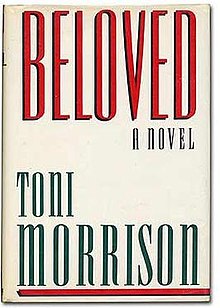
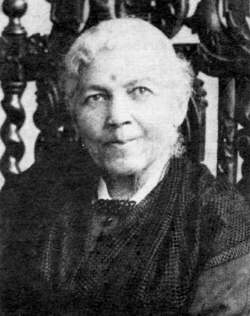
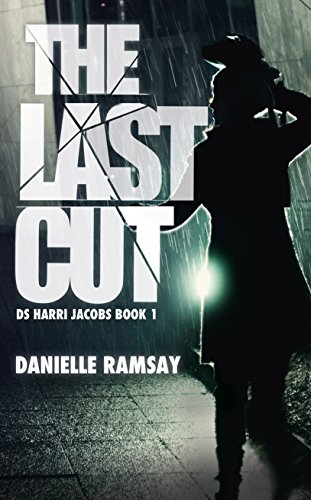
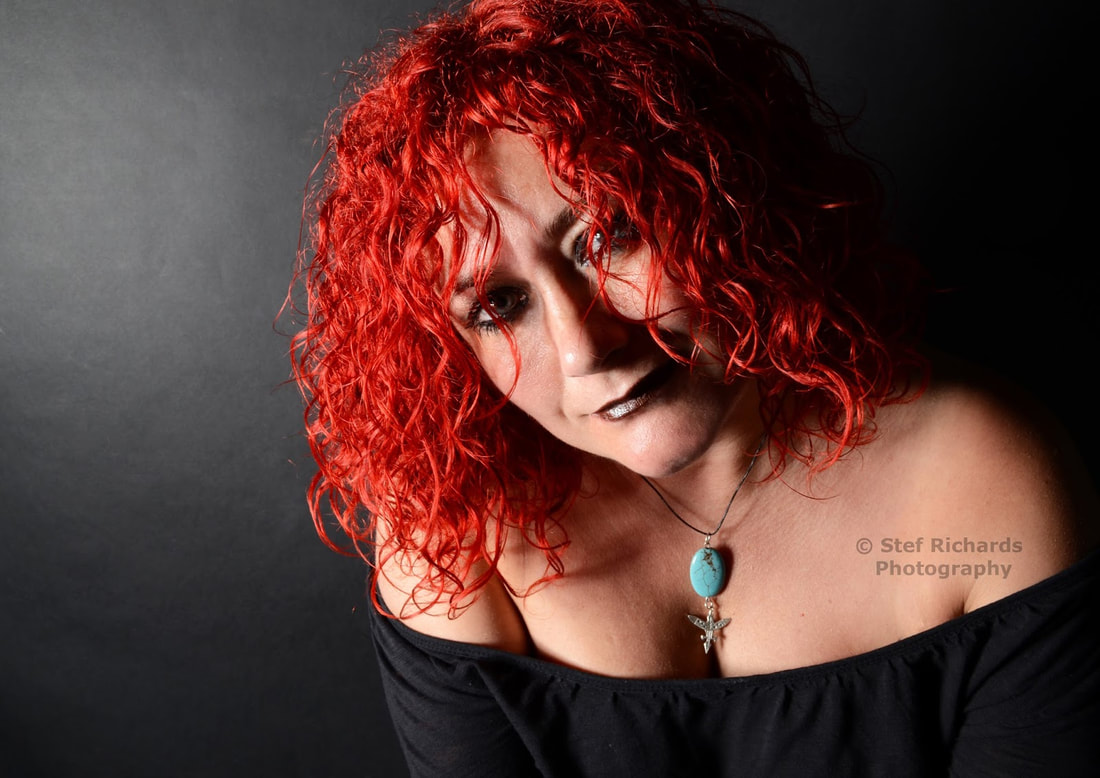
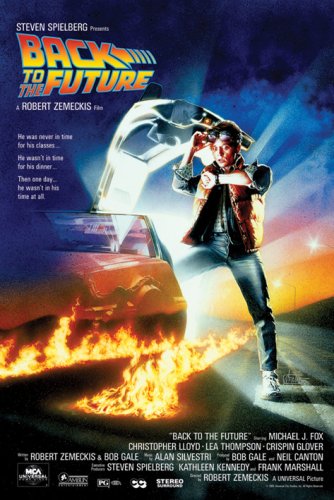
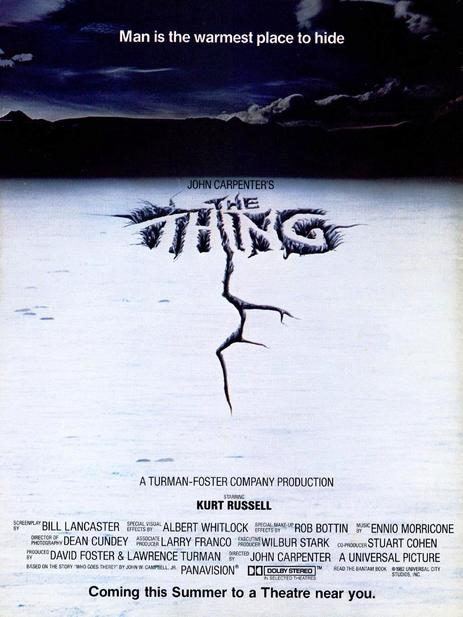
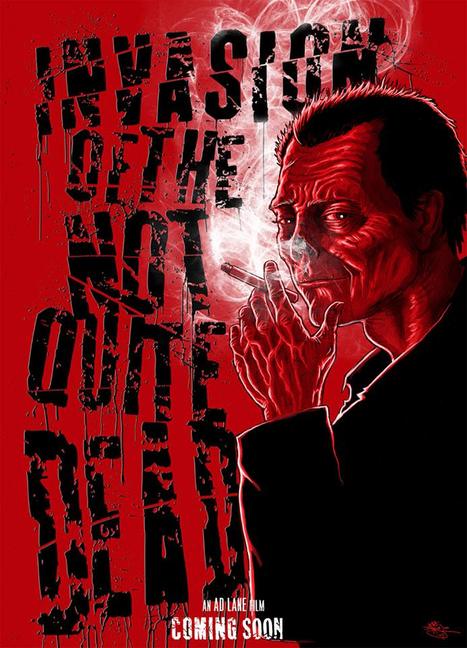
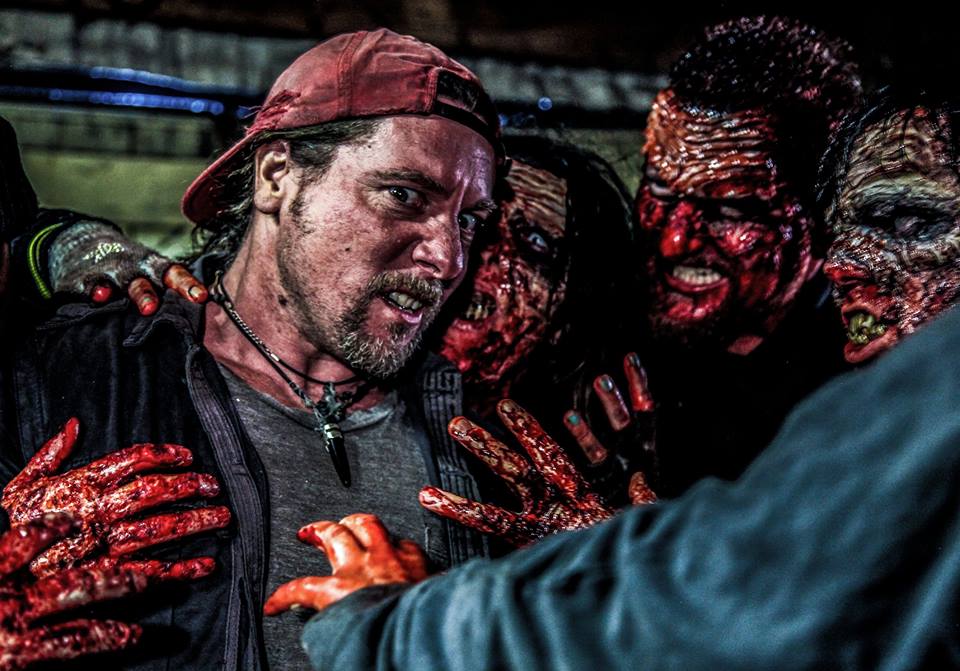
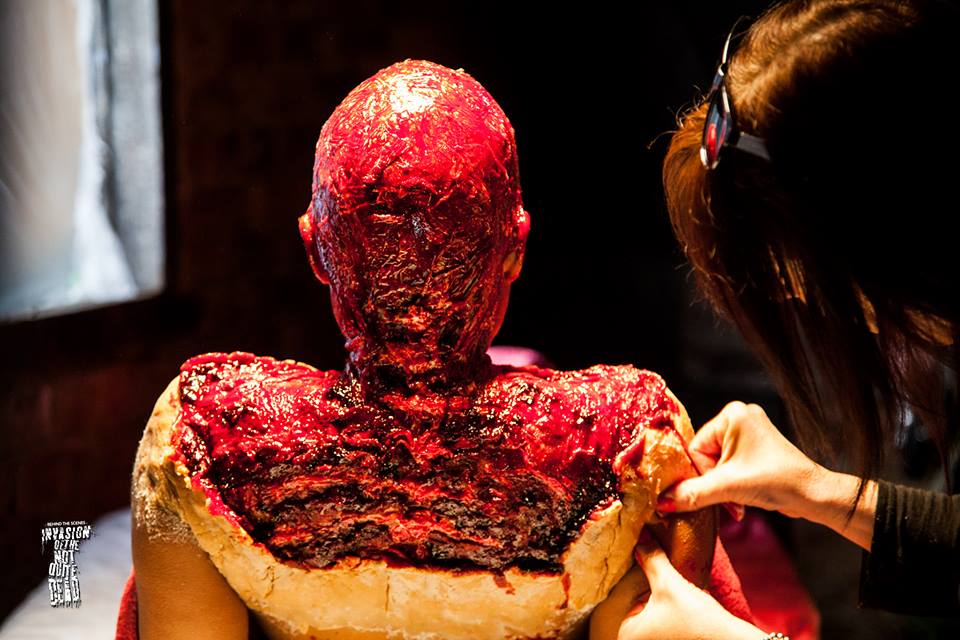
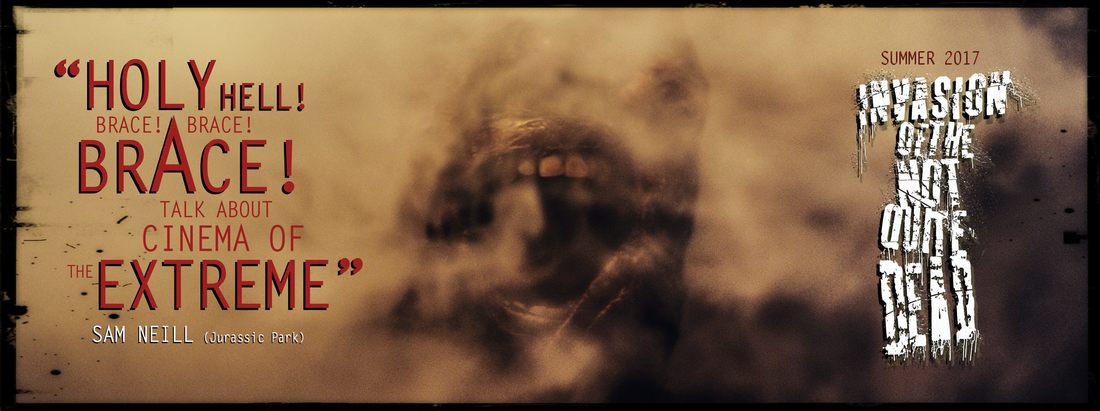
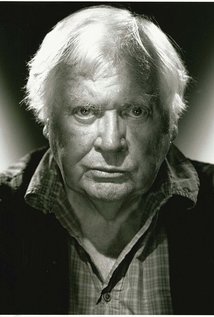
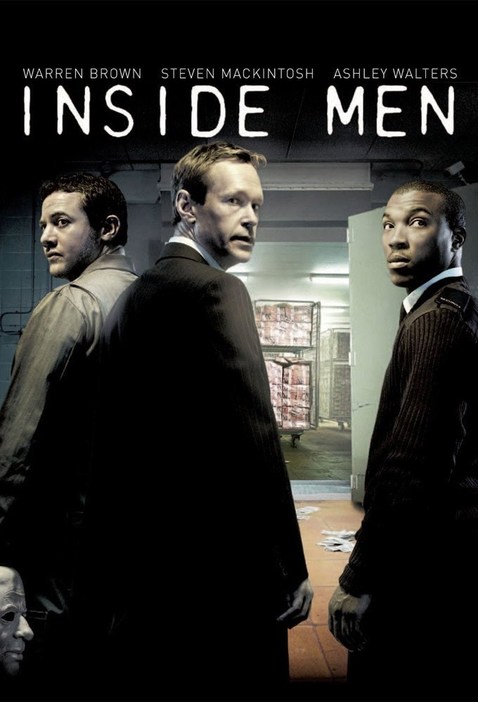
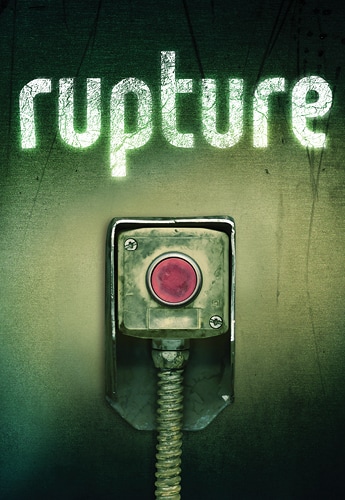
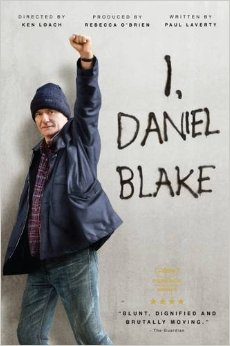
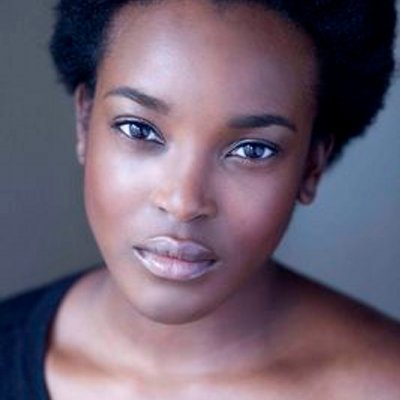

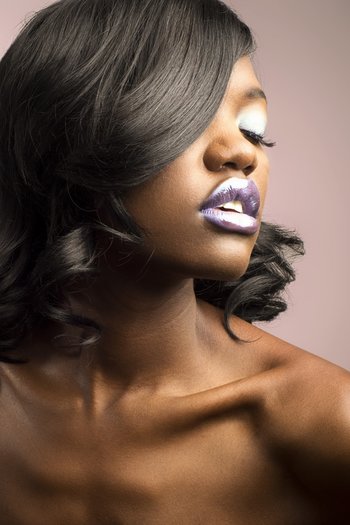
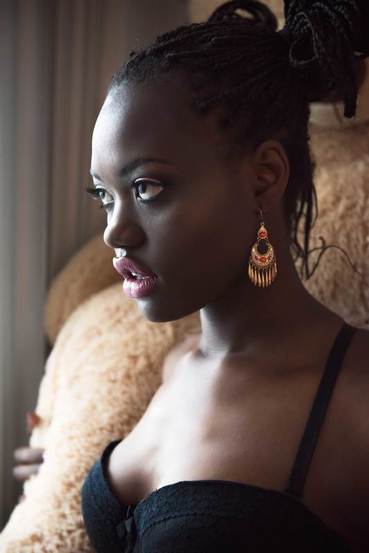
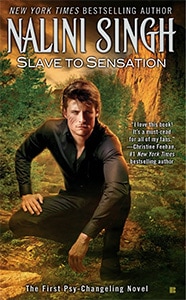
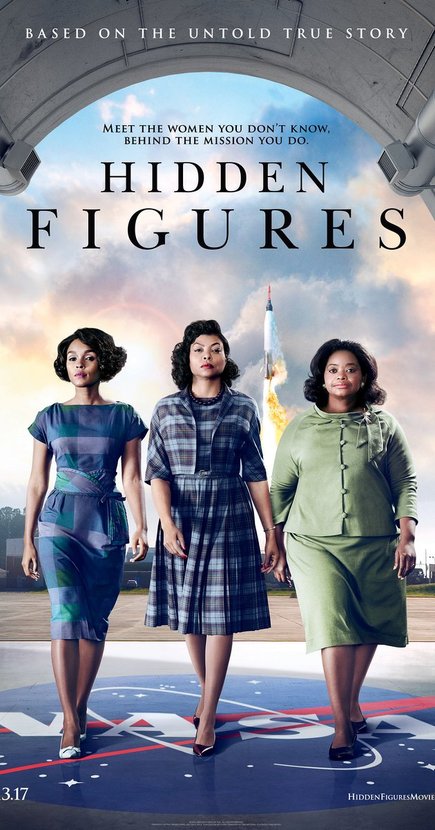
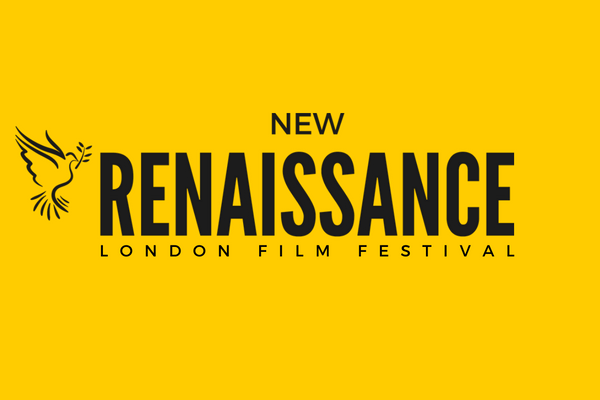
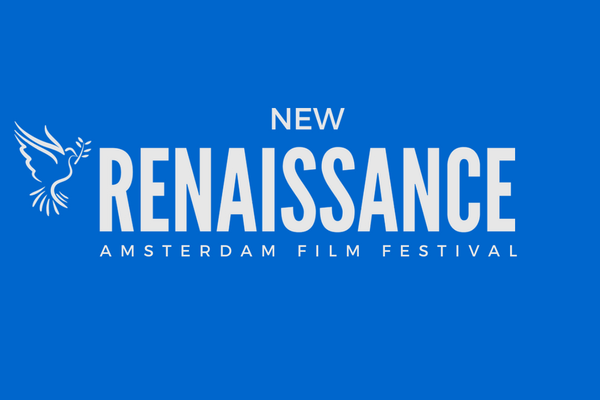
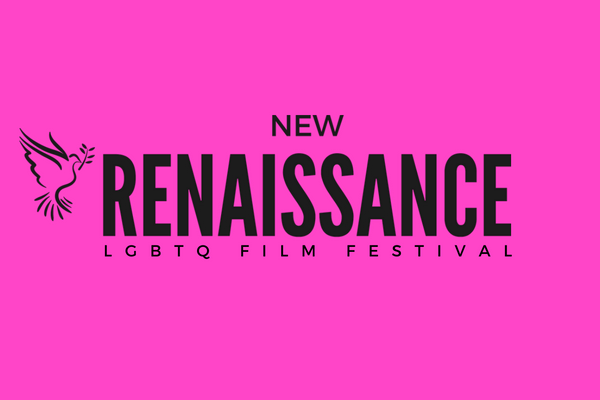
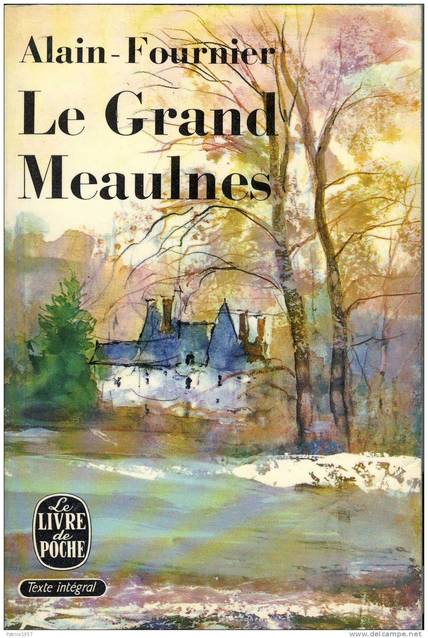
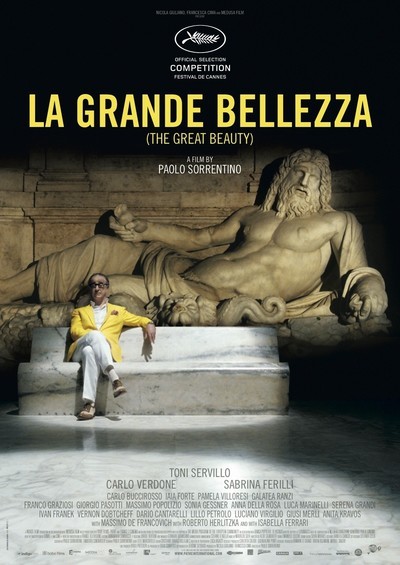
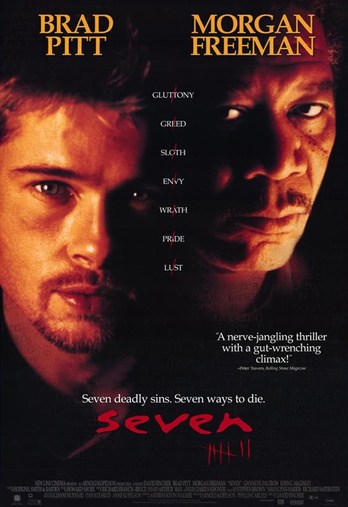

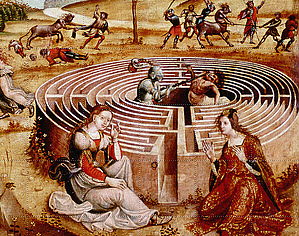
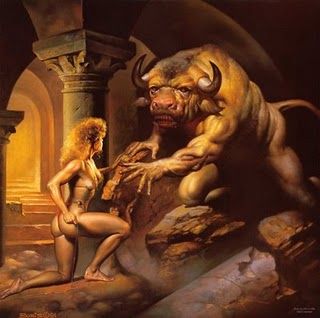
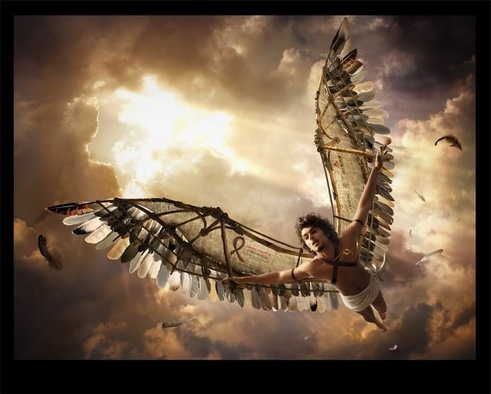
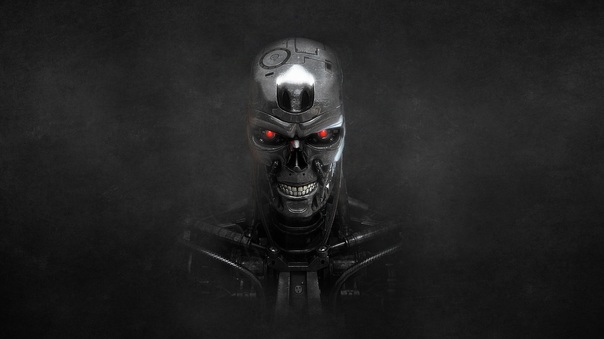
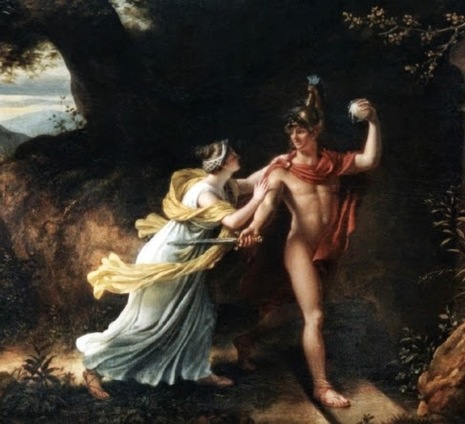
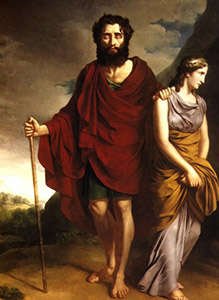
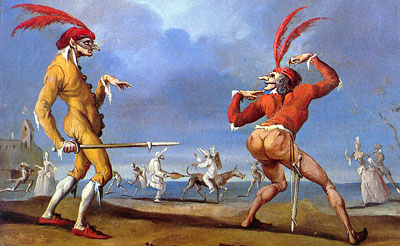
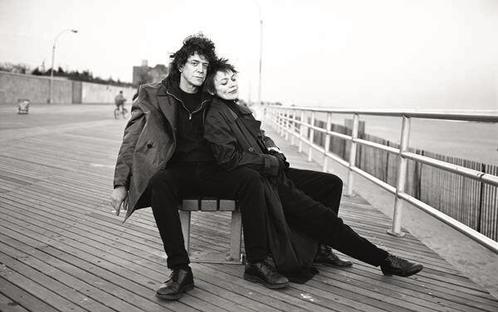
 RSS Feed
RSS Feed